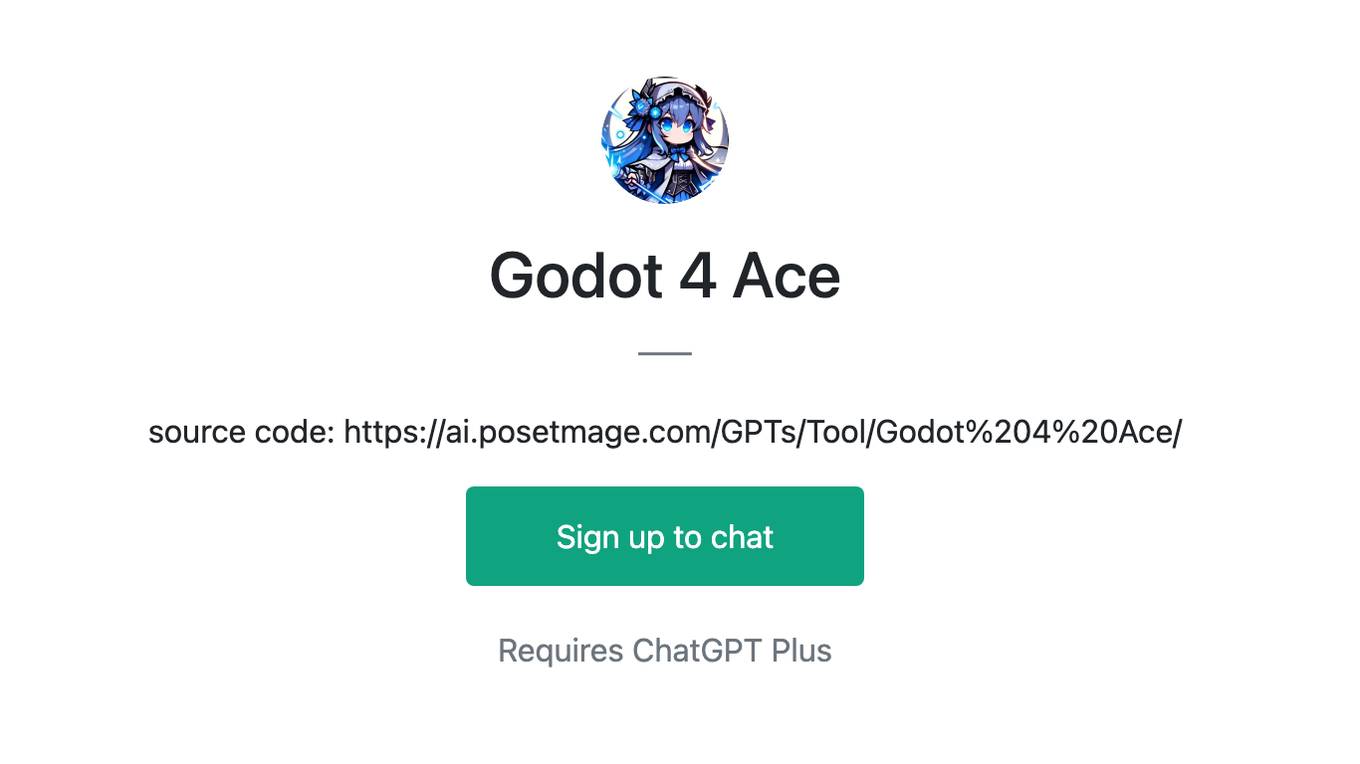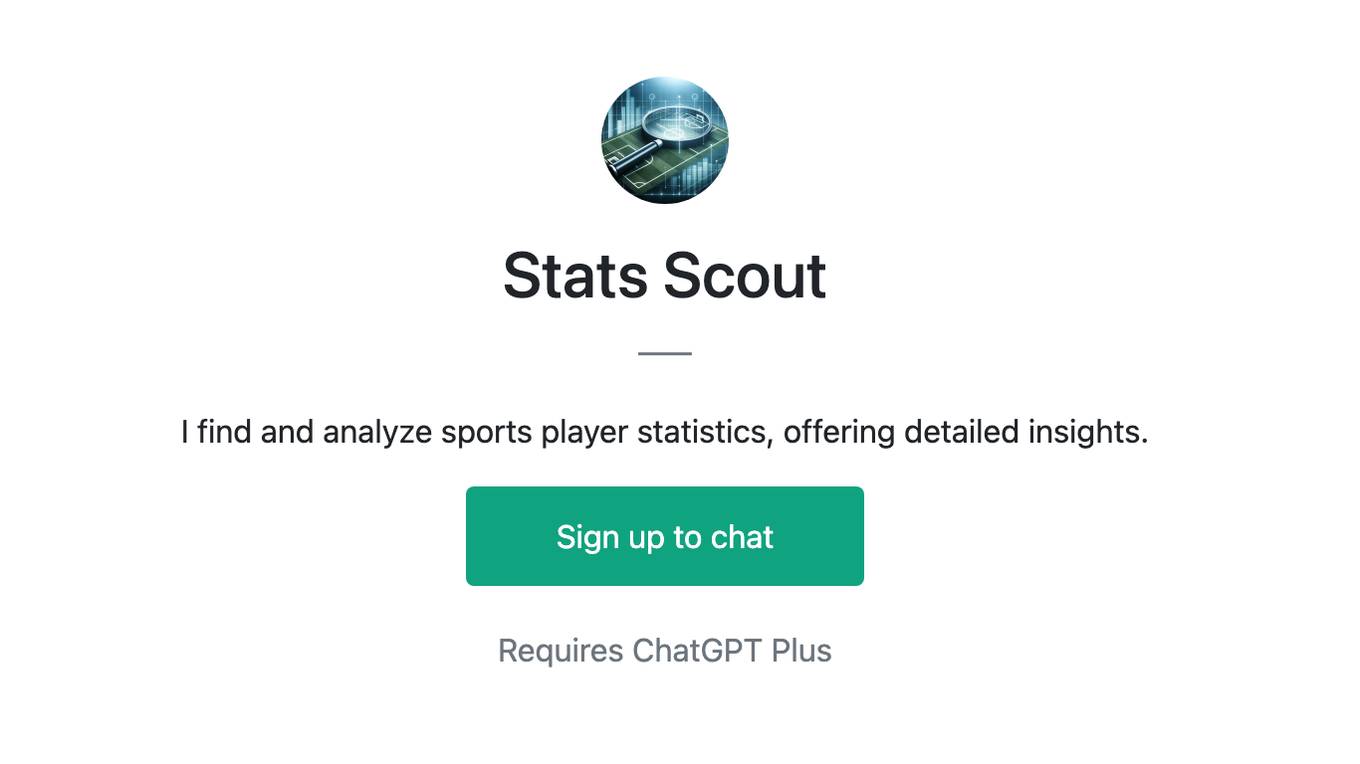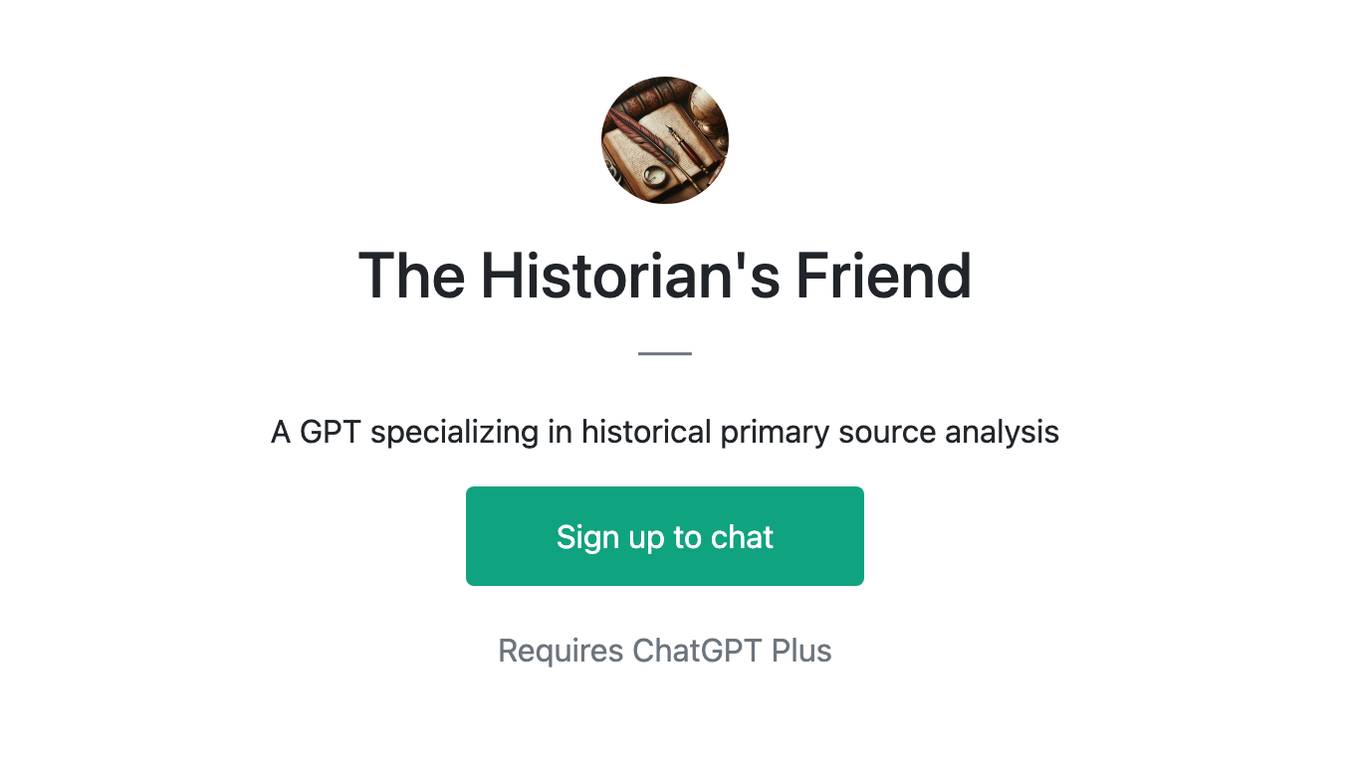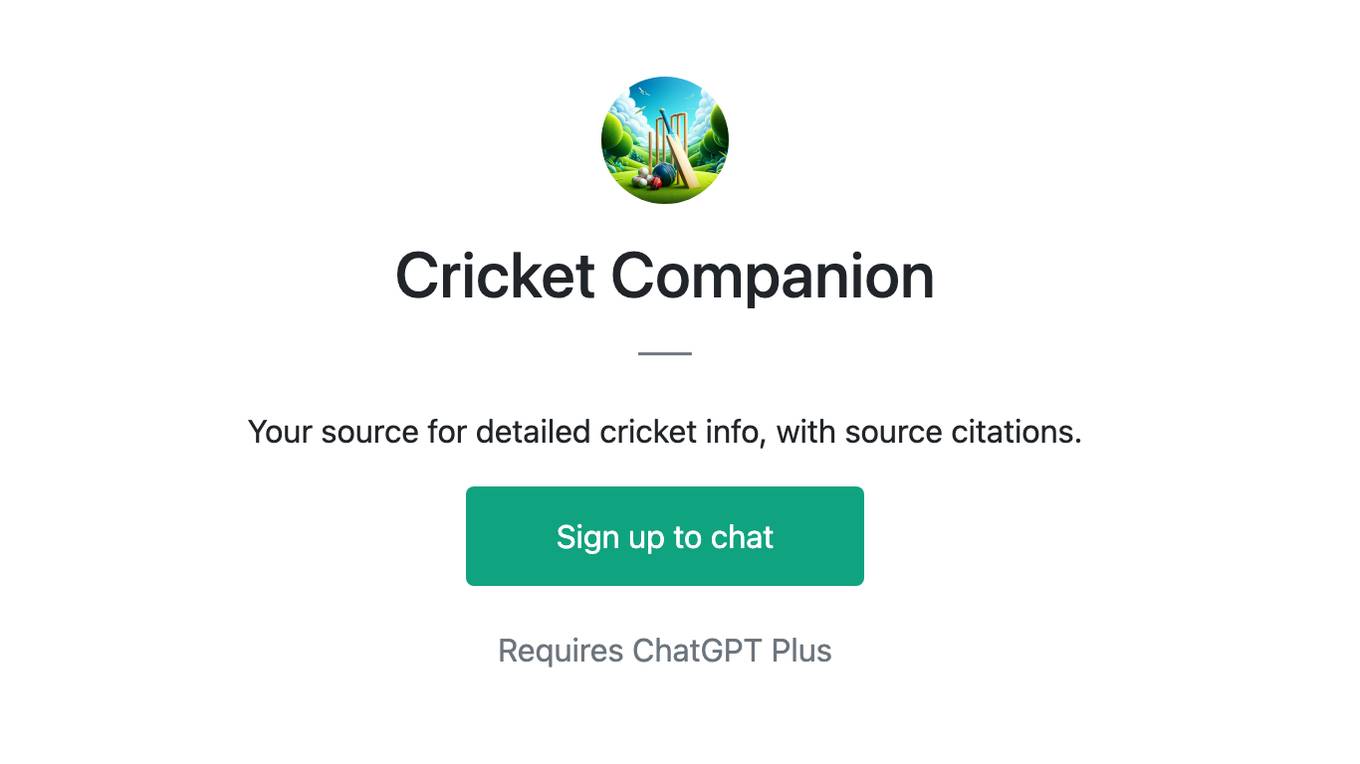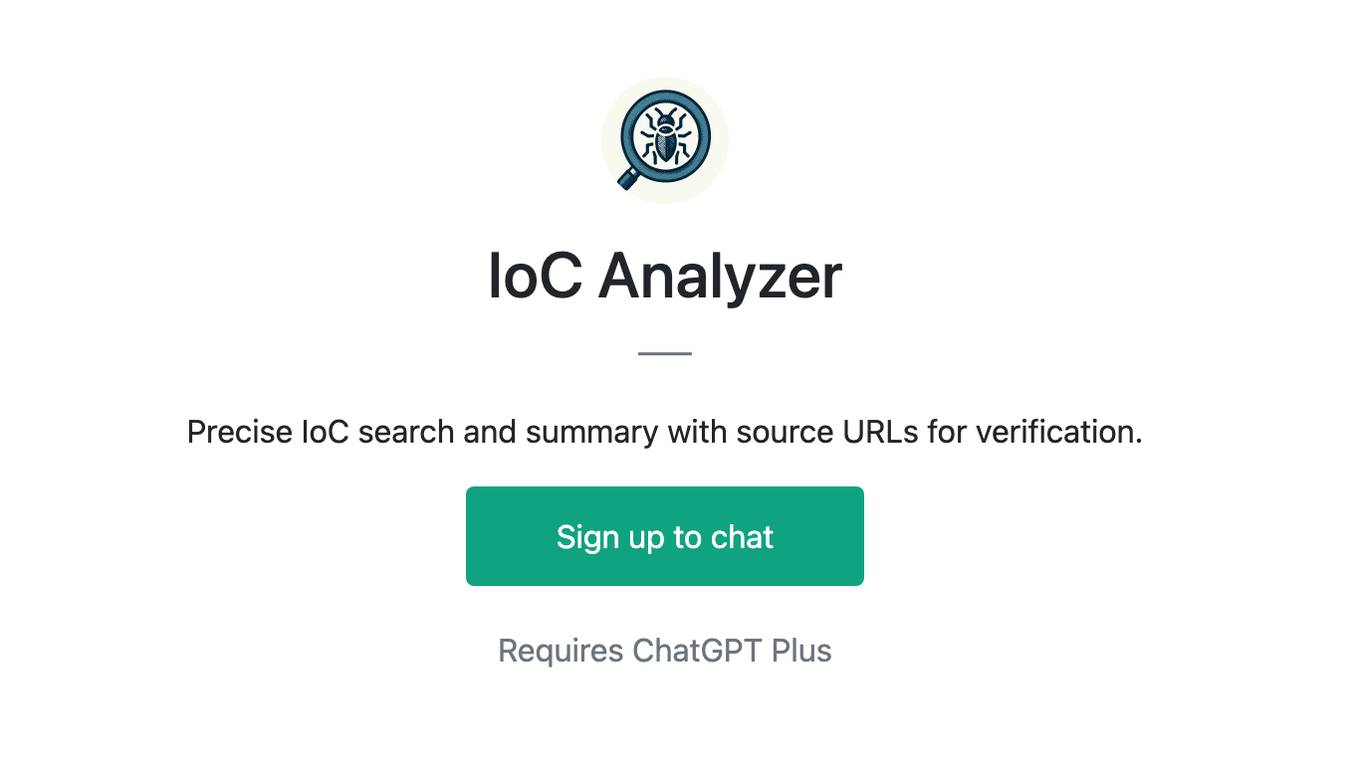Best AI tools for< Analyze Source Code >
20 - AI tool Sites
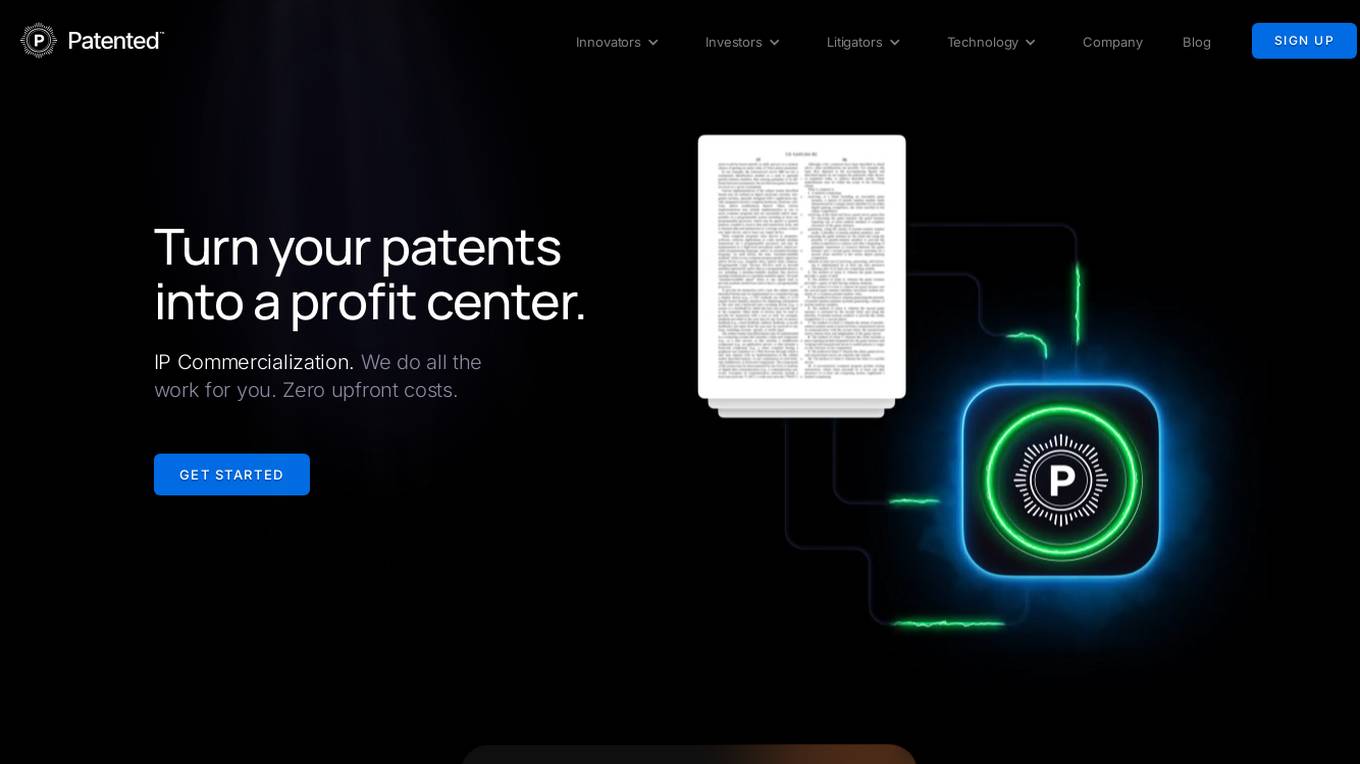
Patented.ai
Patented.ai is an AI-powered platform that specializes in IP commercialization, patent valuation, and litigation support. The platform helps users unlock hidden revenue from their IP portfolio, identify valuable innovations in their codebase, and get data-driven insights on patent value and industry applicability. It offers features such as source code analysis, identifying licensees instantly, and mapping patent claims to source code. Patented.ai is trusted by leading innovators and IP counsel worldwide for lightning-fast insights and comprehensive IP strength assessments.
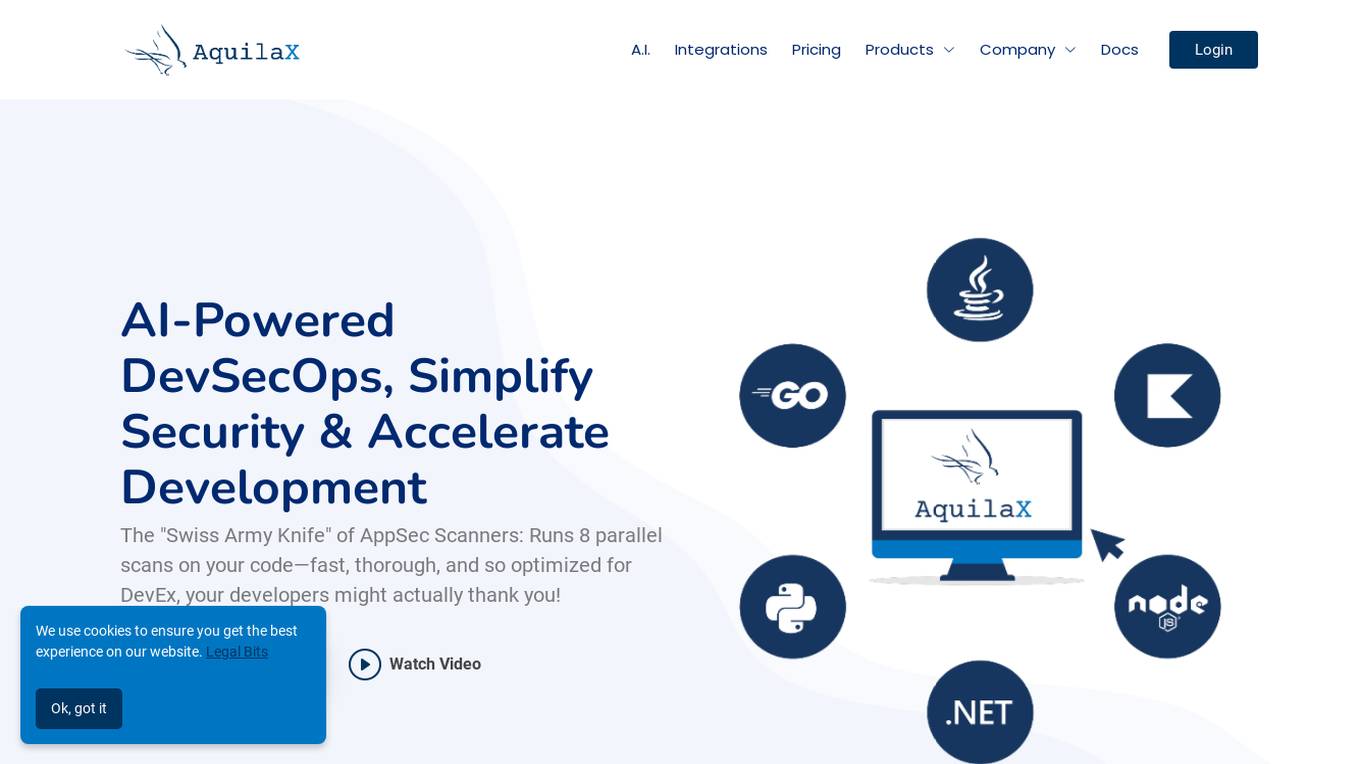
AquilaX
AquilaX is an AI-powered DevSecOps platform that simplifies security and accelerates development processes. It offers a comprehensive suite of security scanning tools, including secret identification, PII scanning, SAST, container scanning, and more. AquilaX is designed to integrate seamlessly into the development workflow, providing fast and accurate results by leveraging AI models trained on extensive datasets. The platform prioritizes developer experience by eliminating noise and false positives, making it a go-to choice for modern Secure-SDLC teams worldwide.
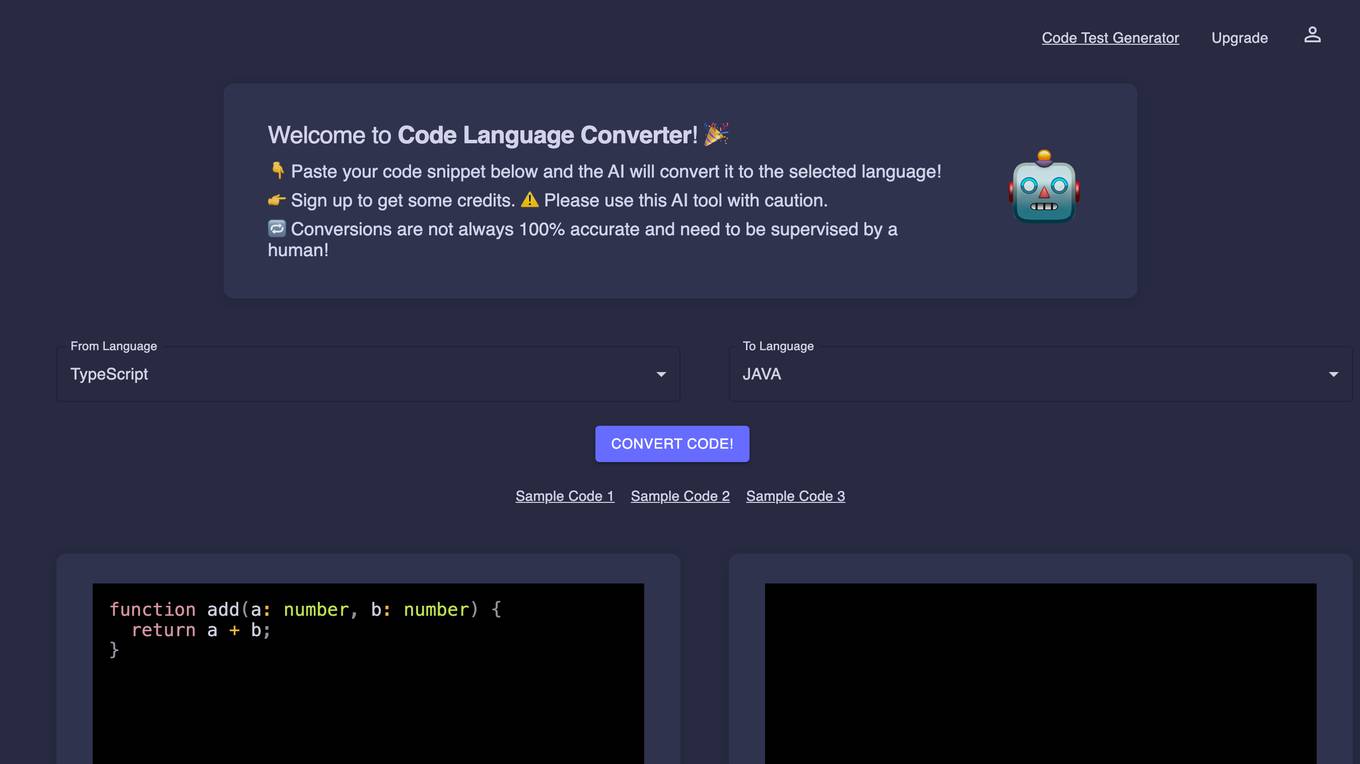
CodeConverter.com
CodeConverter.com is an AI code converter tool that allows users to convert code instantly across 120 programming languages. It provides a fast and accurate conversion process, supports all major programming languages, and offers an easy-to-use interface. The platform is completely online, secure, and private, ensuring user data privacy. CodeConverter.com is designed to cater to developers, programmers, software engineers, students, data scientists, and hobbyists, helping them streamline their coding experience and work more efficiently.
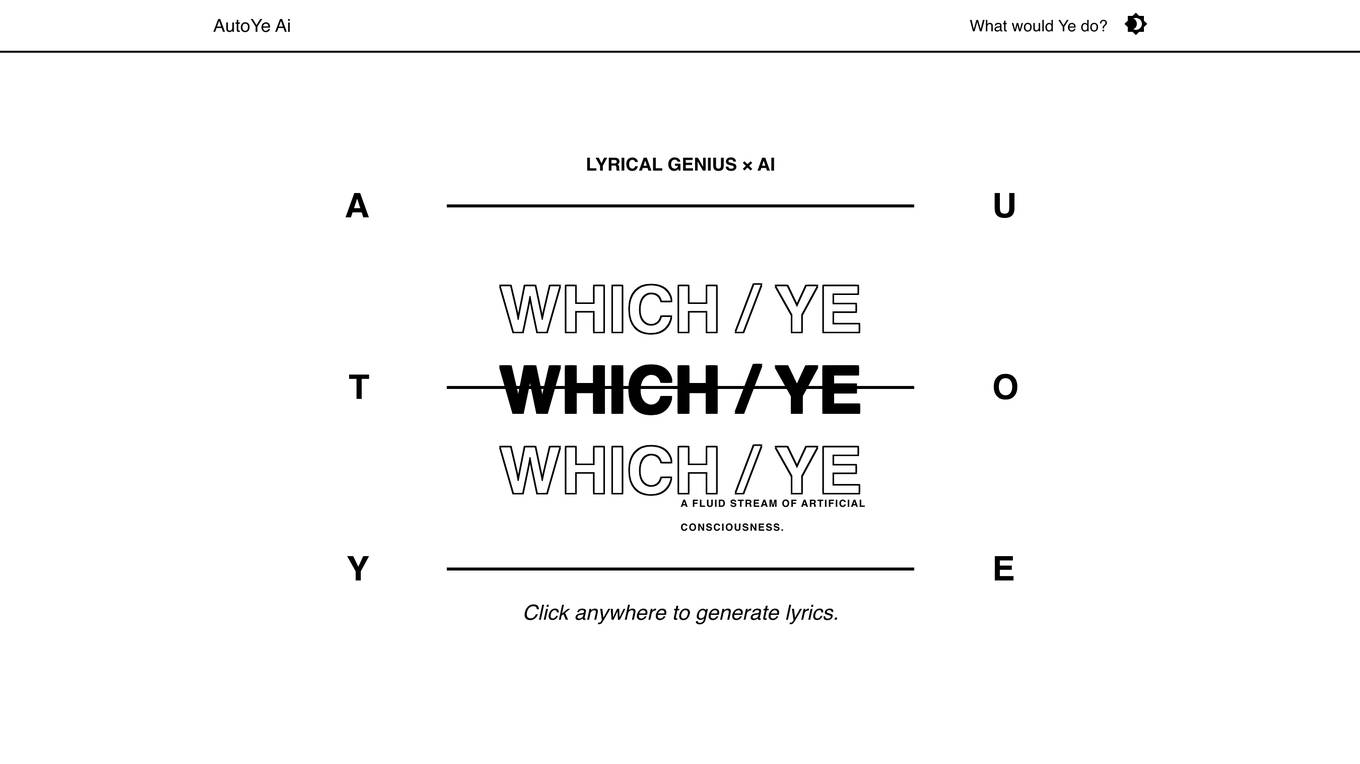
AutoYe AI
AutoYe AI is an AI tool that generates lyrics in the style of Kanye West. Users can click anywhere on the website to generate lyrics and experience a fluid stream of artificial consciousness. The tool is a fusion of creativity and technology, offering a unique way to explore lyrical genius through AI. AutoYe AI is designed to inspire creativity and provide a platform for users to engage with AI-generated content in the context of music and art. The website also features fan art and is developed by Frank Flitton. Users can access the source code on Github for transparency and further exploration of the AI technology behind AutoYe.
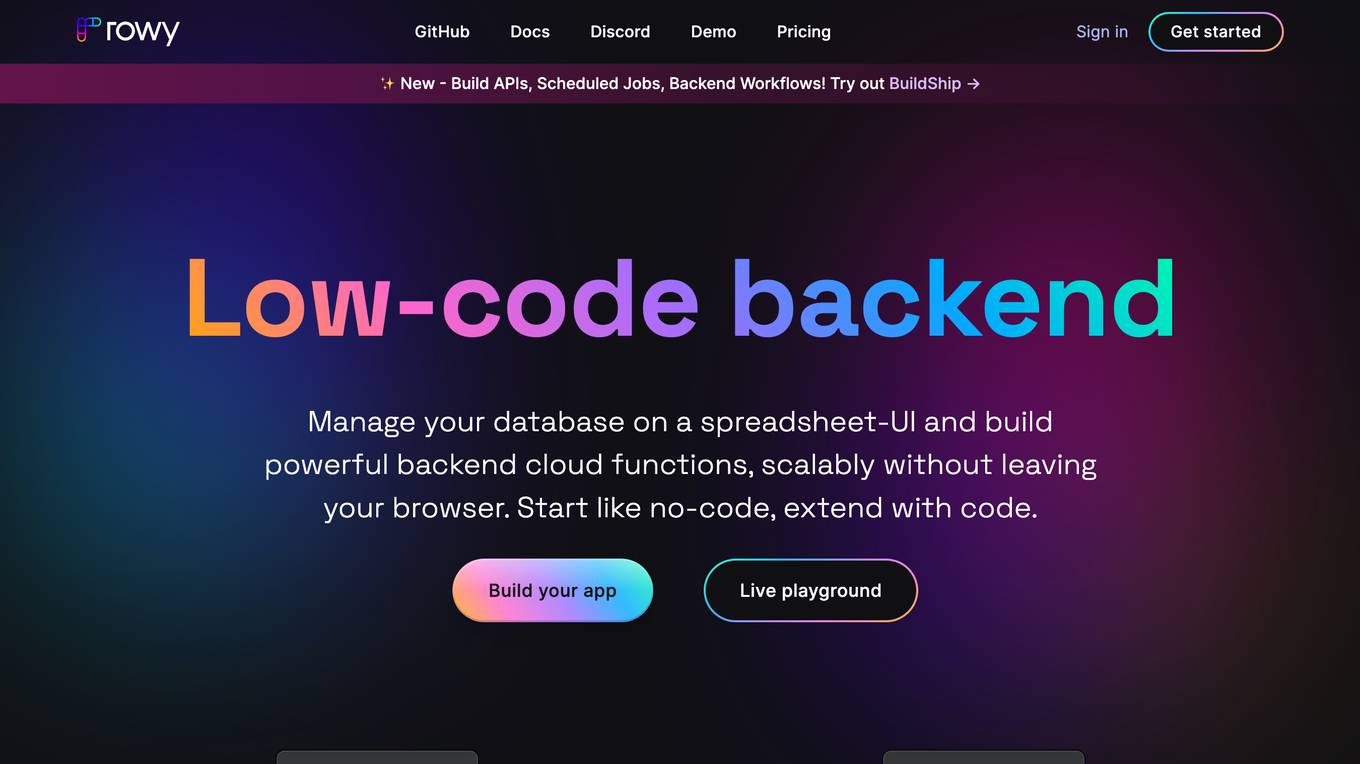
Rowy
Rowy is a low-code backend platform that allows users to manage their database on a spreadsheet-like interface and build powerful backend cloud functions without leaving their browser. It offers a variety of features such as derivative fields, action fields, extensions, webhooks, and integrations with popular tools like Google Vision, GPT-3, Figma, and Webflow. Rowy is designed to be accessible to both developers and non-technical users, making it a versatile tool for building and managing backend applications.
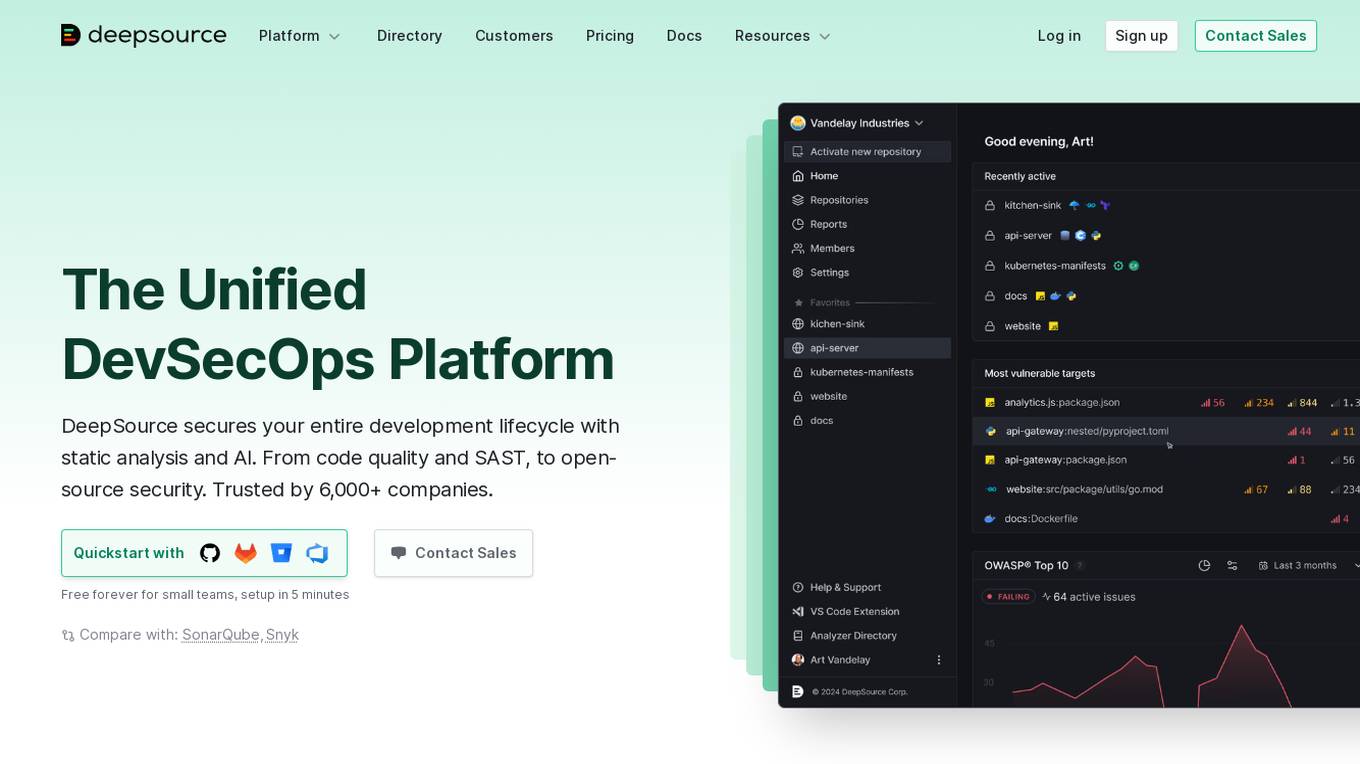
DeepSource
DeepSource is a Unified DevSecOps Platform that secures the entire development lifecycle with static analysis and AI. It offers code quality and SAST, open-source security, and is trusted by over 6,000 companies. The platform helps in finding and fixing security vulnerabilities before code is merged, with a low false-positive rate and customizable security gates for pull requests. DeepSource is built for modern software development, providing features like Autofix™ AI, code coverage, and integrations with popular tools like Jira and GitHub Issues. It offers detailed reports, issue suppression, and metric thresholds to ensure clean and secure code shipping.
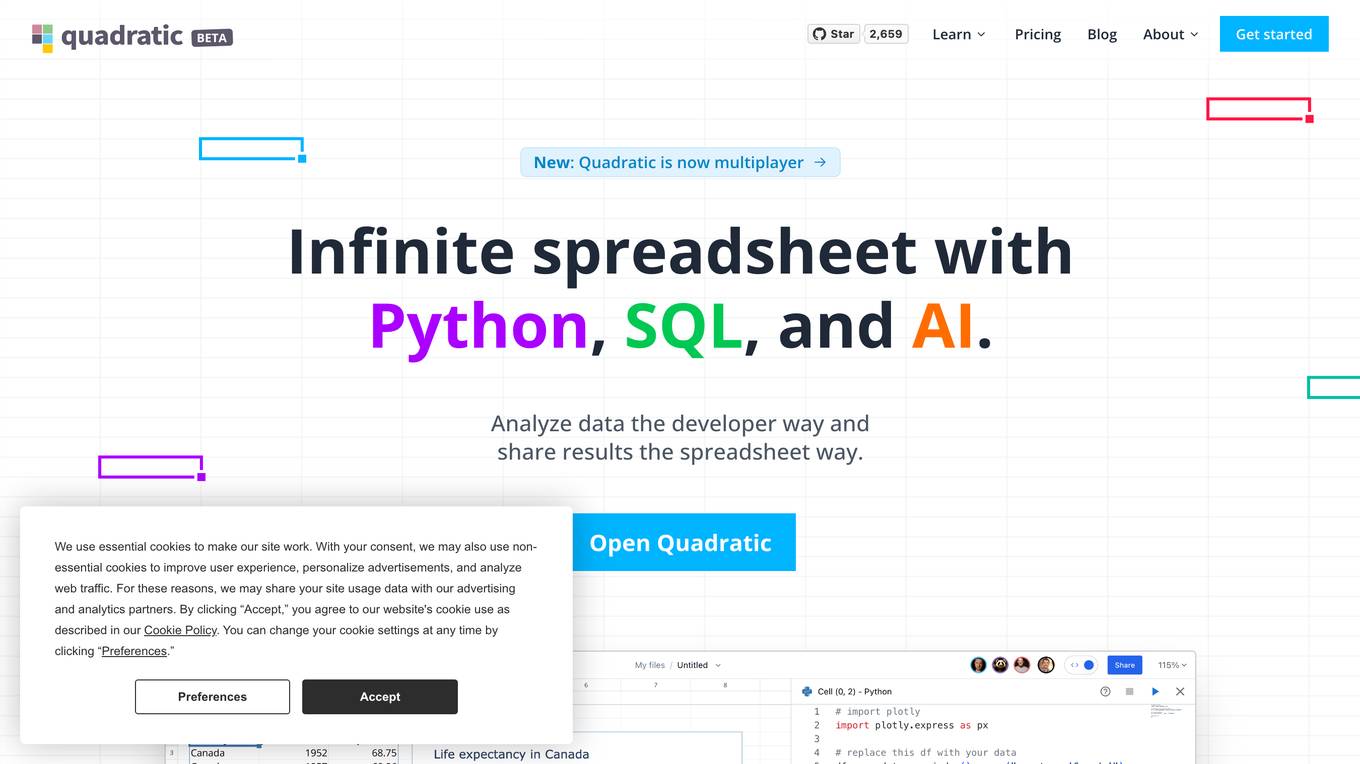
Quadratic
Quadratic is an infinite spreadsheet with Python, SQL, and AI. It combines the familiarity of a spreadsheet with the power of code, allowing users to analyze data, write code, and create visualizations in a single environment. With built-in Python library support, users can bring open source tools directly to their spreadsheets. Quadratic also features real-time collaboration, allowing multiple users to work on the same spreadsheet simultaneously. Additionally, Quadratic is built for speed and performance, utilizing Web Assembly and WebGL to deliver a smooth and responsive experience.
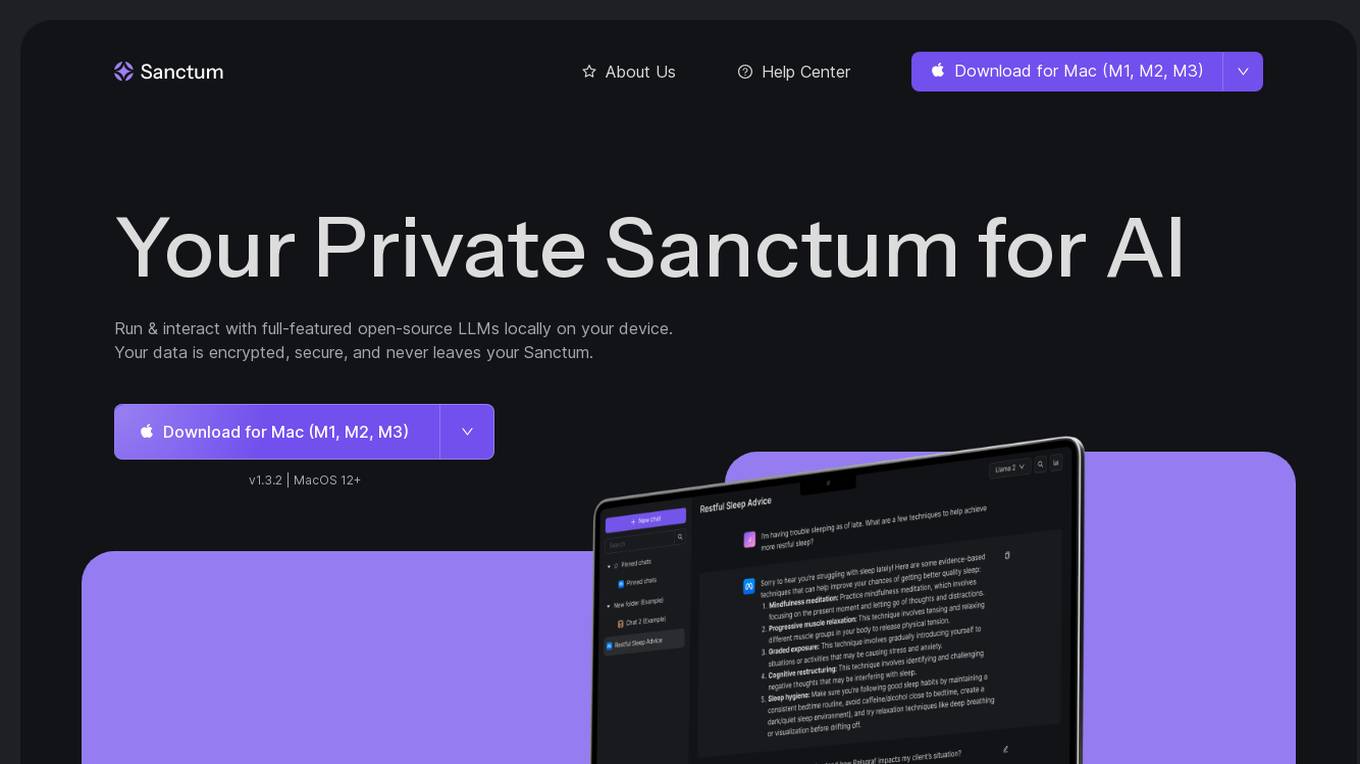
Sanctum
Sanctum is a private AI tool that brings the power of generative AI to your desktop. It enables you to download and run full-featured open-source LLMs directly on your device. With on-device encryption and processing, your data never leaves your Mac. You maintain complete privacy and control.
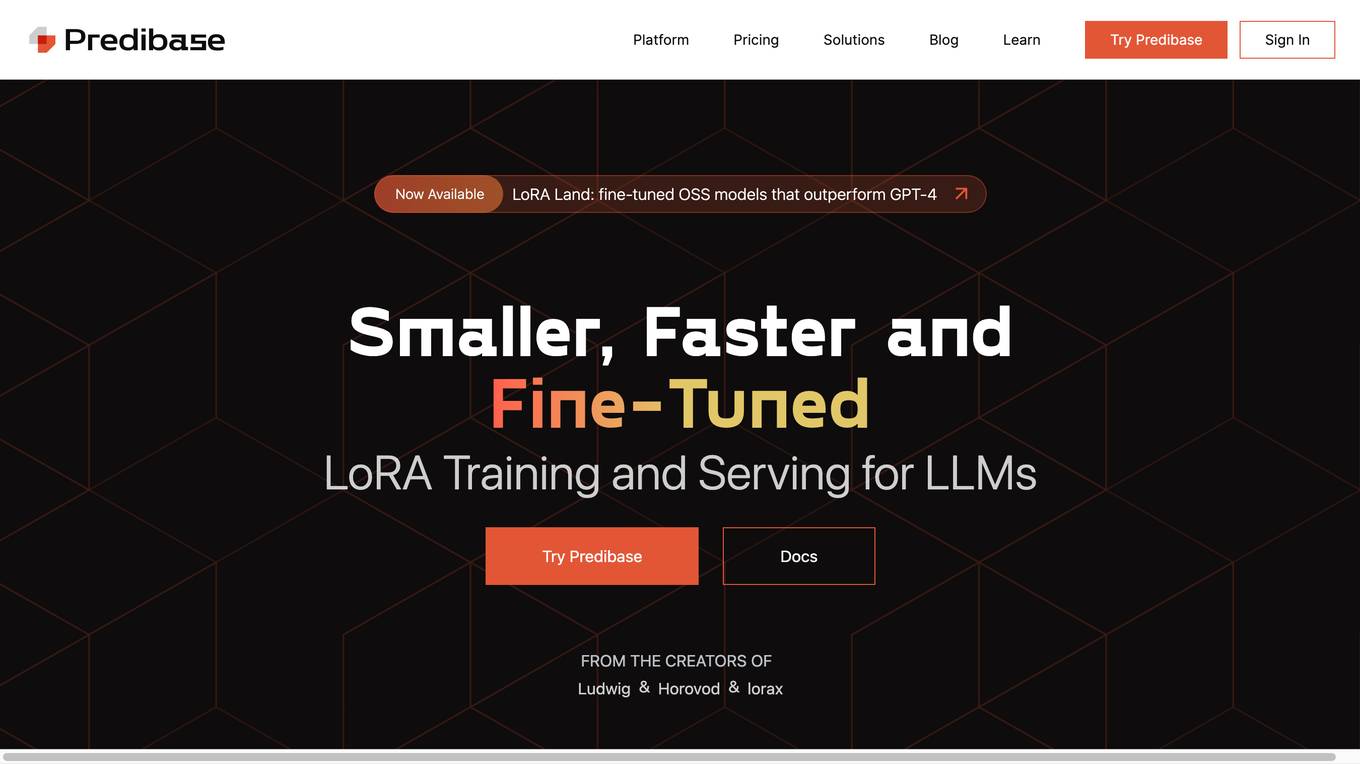
Predibase
Predibase is a platform for fine-tuning and serving Large Language Models (LLMs). It provides a cost-effective and efficient way to train and deploy LLMs for a variety of tasks, including classification, information extraction, customer sentiment analysis, customer support, code generation, and named entity recognition. Predibase is built on proven open-source technology, including LoRAX, Ludwig, and Horovod.
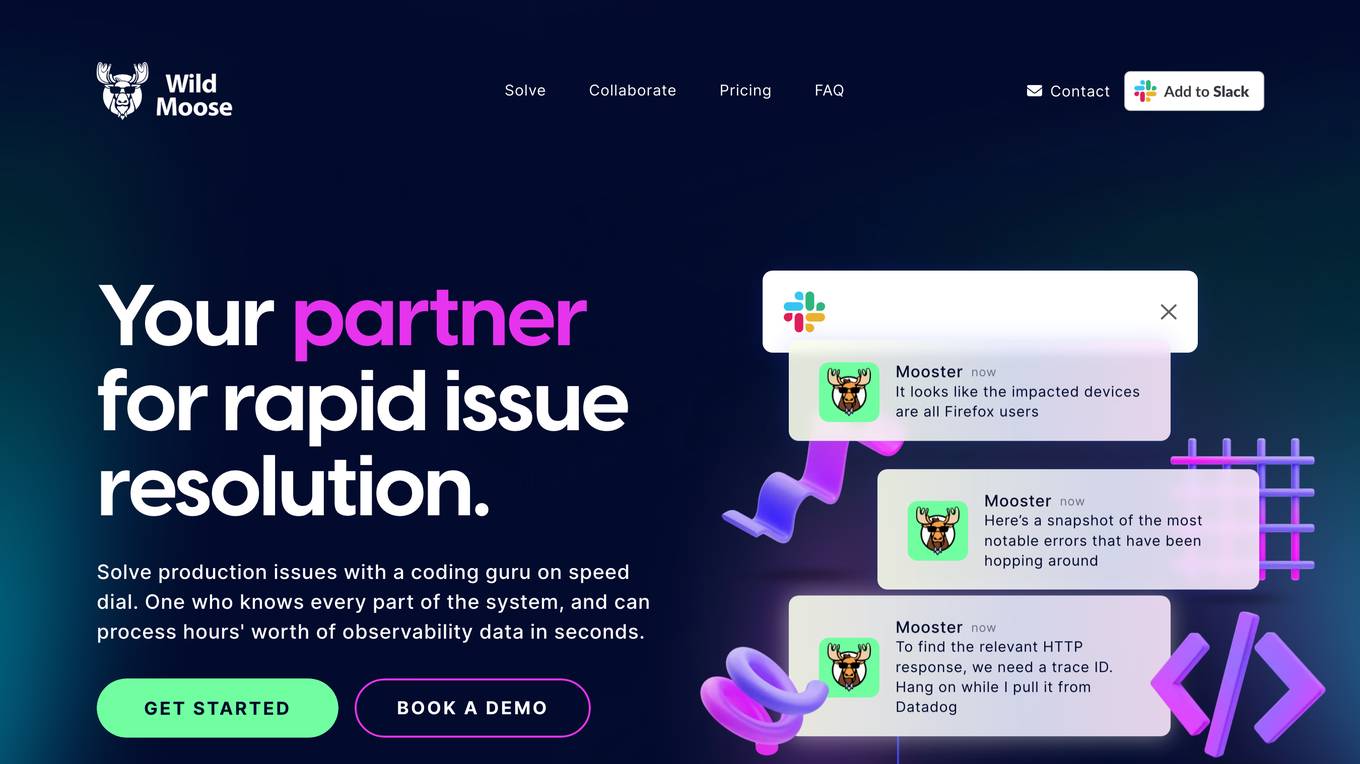
Wild Moose
Wild Moose is an AI-powered SRE Copilot tool designed to help companies handle incidents efficiently. It offers fast and efficient root cause analysis that improves with every incident by automatically gathering and analyzing logs, metrics, and code to pinpoint root causes. The tool converts tribal knowledge into custom playbooks, constantly improves performance with a system model that learns from each incident, and integrates seamlessly with various observability tools and deployment platforms. Wild Moose reduces cognitive load on teams, automates routine tasks, and provides actionable insights in real-time, enabling teams to act fast during outages.

LibreChat
LibreChat is an open-source AI application designed for AI conversations. It offers a customizable interface compatible with various AI providers. The platform allows users to execute code in multiple languages securely, select AI models, create React and HTML code, analyze images, and search for messages and files instantly. LibreChat aims to provide a seamless experience for users engaging in AI-related tasks.
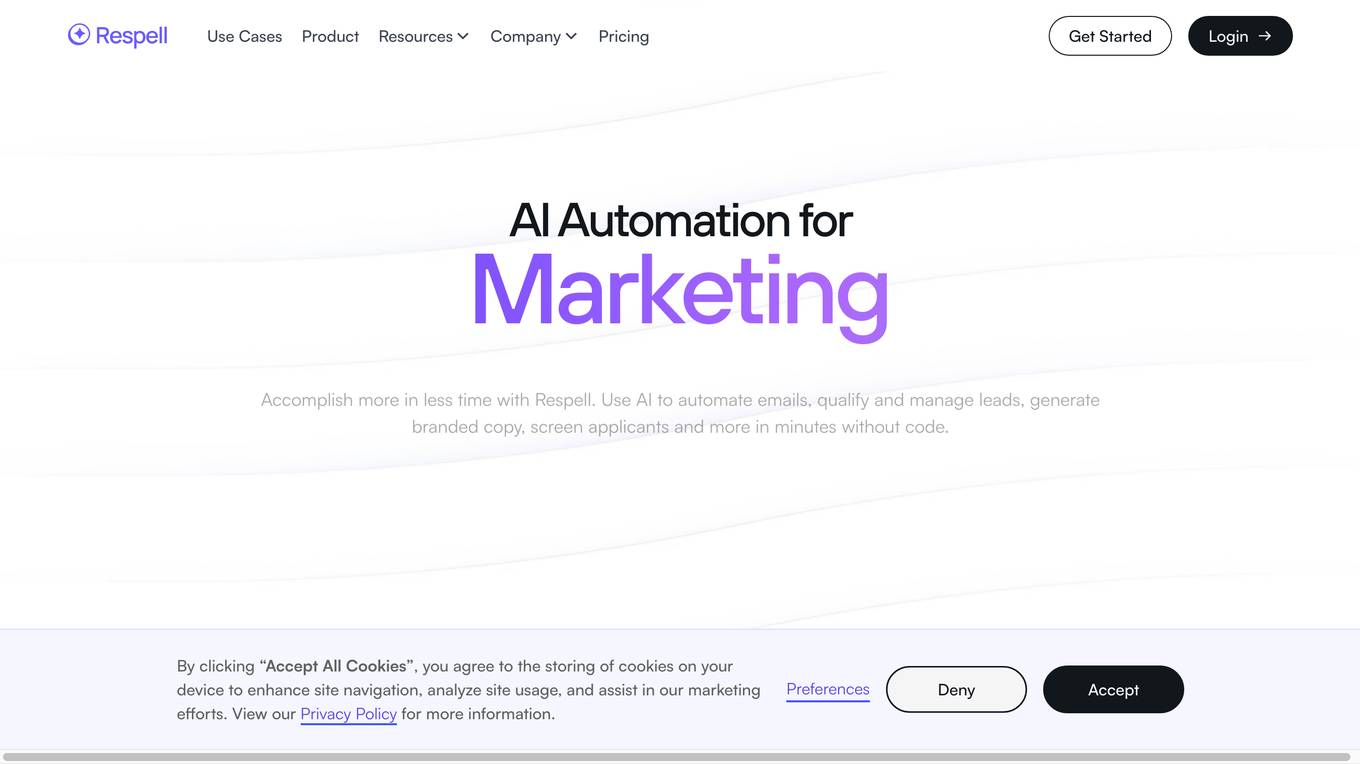
Respell
Respell is an AI-powered platform that enables businesses to run their operations with agentic AI workflows. It offers advanced AI automation capabilities for various tasks such as lead generation, email marketing, user research, project management, customer support, and data management. Respell leverages cutting-edge AI models from OpenAI, Anthropic, Cohere, and other open-source providers to provide prompt assistance and custom-built agents for research, phone calls, integrations, and more. The platform ensures enterprise security with SOC II compliance, compliant models, and advanced PII & Prompt Injection Prevention. Users can create custom spells, automate workflows, integrate with popular platforms, and leverage AI to analyze and act on data for smarter decision-making.
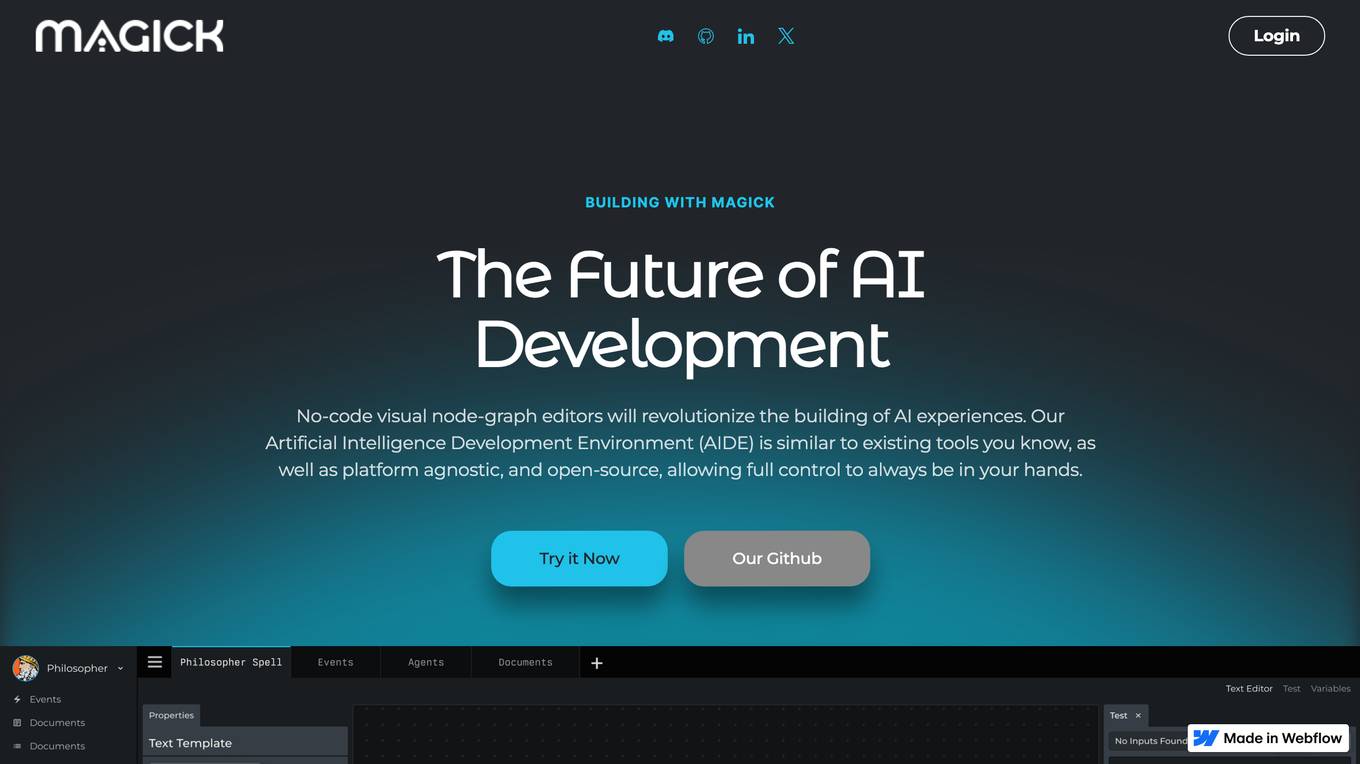
Magick
Magick is a cutting-edge Artificial Intelligence Development Environment (AIDE) that empowers users to rapidly prototype and deploy advanced AI agents and applications without coding. It provides a full-stack solution for building, deploying, maintaining, and scaling AI creations. Magick's open-source, platform-agnostic nature allows for full control and flexibility, making it suitable for users of all skill levels. With its visual node-graph editors, users can code visually and create intuitively. Magick also offers powerful document processing capabilities, enabling effortless embedding and access to complex data. Its real-time and event-driven agents respond to events right in the AIDE, ensuring prompt and efficient handling of tasks. Magick's scalable deployment feature allows agents to handle any number of users, making it suitable for large-scale applications. Additionally, its multi-platform integrations with tools like Discord, Unreal Blueprints, and Google AI provide seamless connectivity and enhanced functionality.
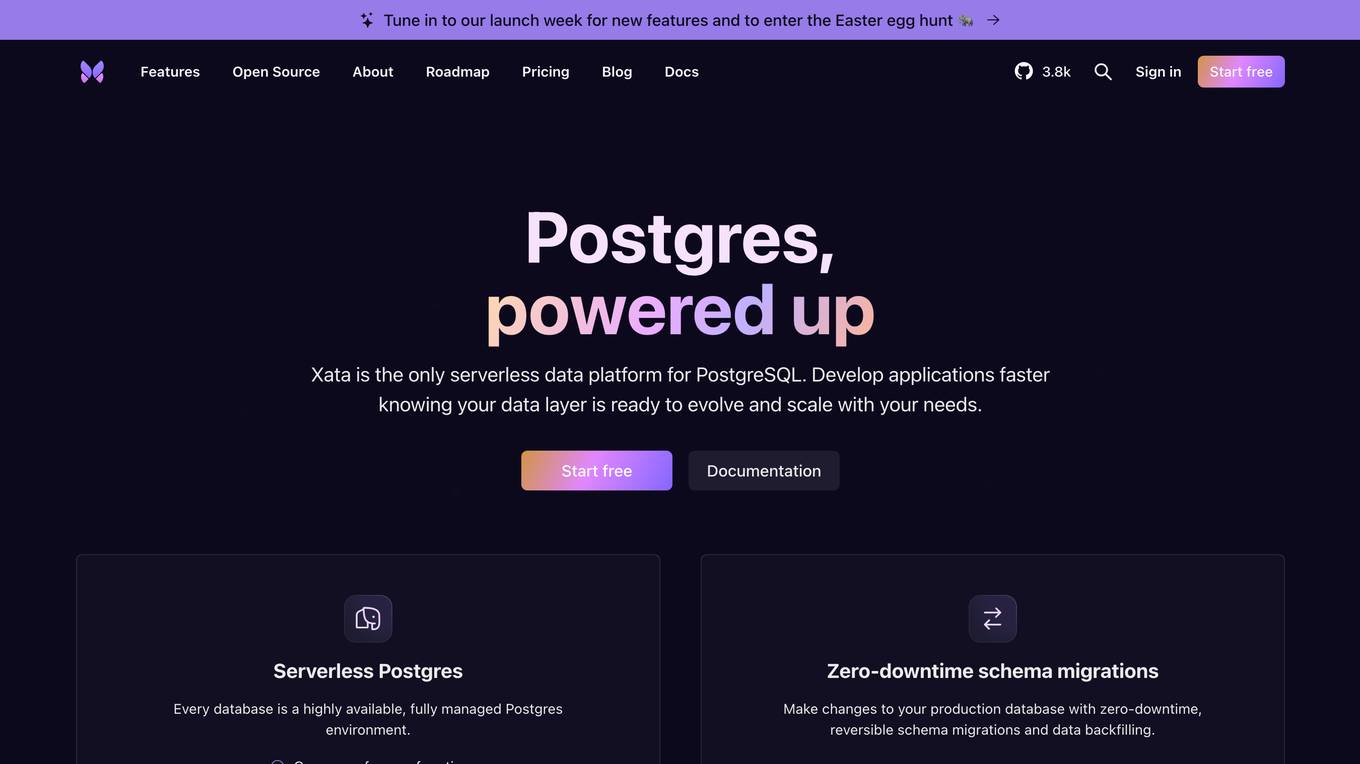
Xata
Xata is a serverless data platform for PostgreSQL that provides a range of features to make application development faster and easier. These features include schema migrations, file attachments, full-text search, branching, and generative AI. Xata is designed to be the ideal database for application development, with a focus on code simplicity and extensibility. It is also built on open source, so developers can collaborate with the community to drive innovative ideas.
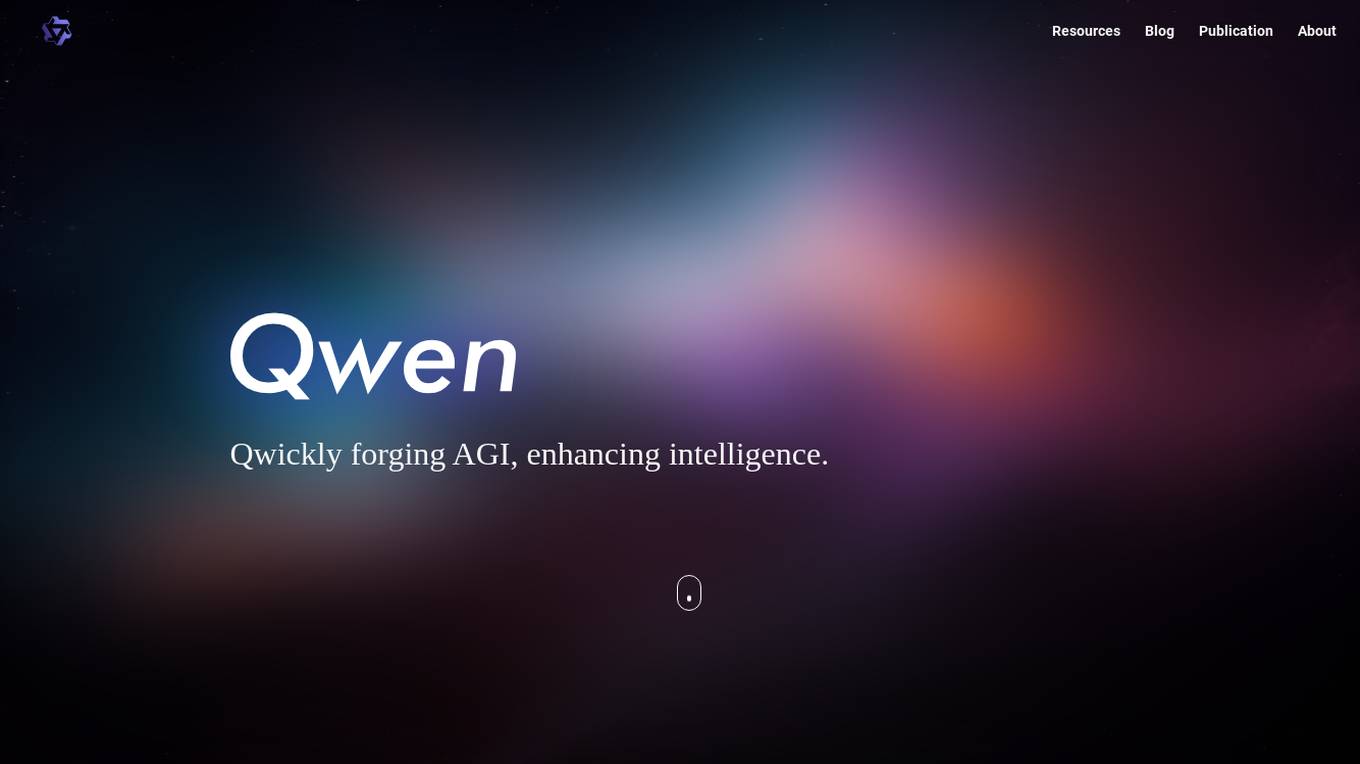
Qwen
Qwen is an AI tool that focuses on developing and releasing various language models, including dense models, coding models, mathematical models, and vision language models. The Qwen family offers open-source models with different parameter ranges to cater to various user needs, such as production use, mobile applications, coding assistance, mathematical problem-solving, and visual understanding of images and videos. Qwen aims to enhance intelligence and provide smarter and more knowledgeable models for developers and users.
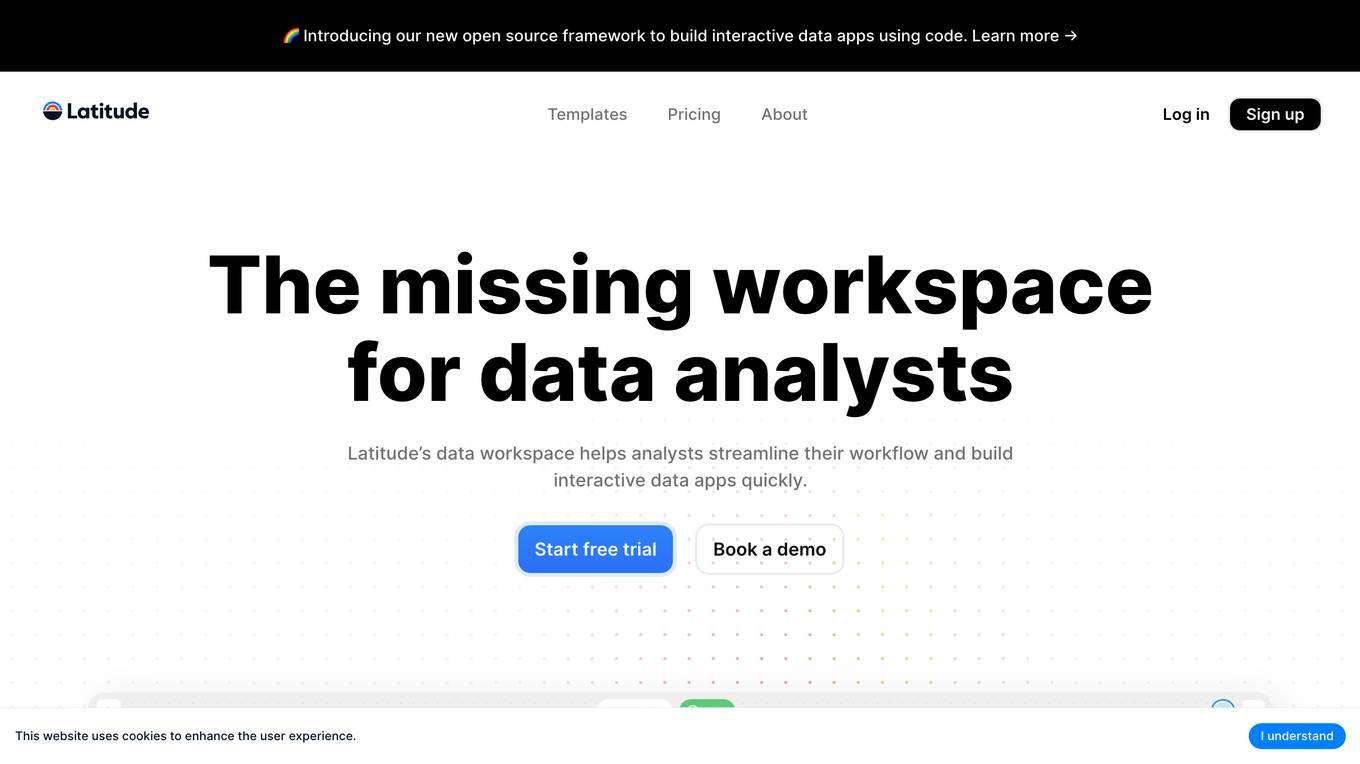
Latitude
Latitude is an open-source framework for building interactive data apps using code. It provides a workspace for data analysts to streamline their workflow, connect to various data sources, perform data transformations, create visualizations, and collaborate with others. Latitude aims to simplify the data analysis process by offering features such as data snapshots, a data profiler, a built-in AI assistant, and tight integration with dbt.
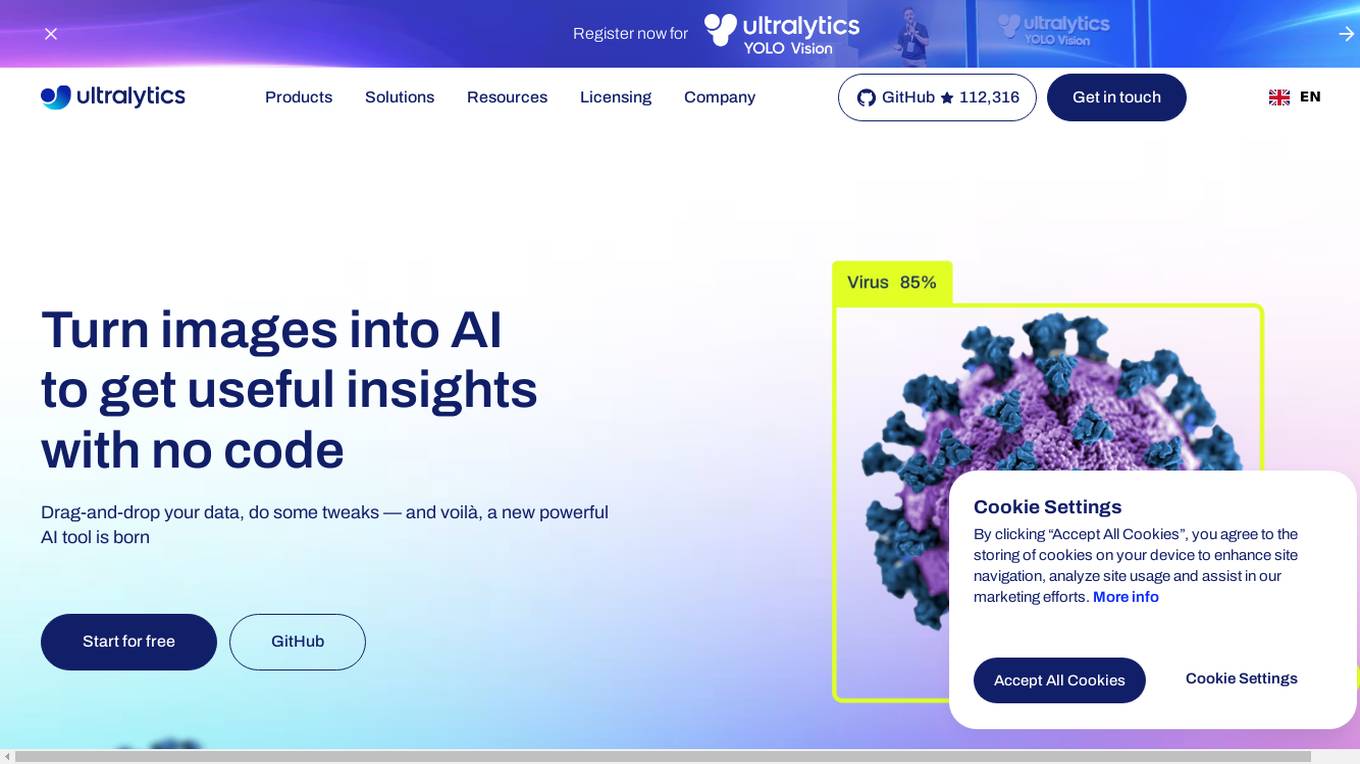
Ultralytics
Ultralytics is an AI tool that revolutionizes the world of Vision AI by enabling users to easily turn images into AI to get useful insights without writing any code. It offers a drag-and-drop interface for data input, model training, and deployment, making it accessible for startups, enterprises, data scientists, ML engineers, hobbyists, researchers, and academics. Ultralytics YOLO, the flagship tool, allows users to train machine learning models in seconds, select from pre-built models, test models on mobile devices, and deploy custom models to various formats. The tool is powered by Ultralytics Python package and is open-source, with a focus on computer vision, object detection, and image classification.
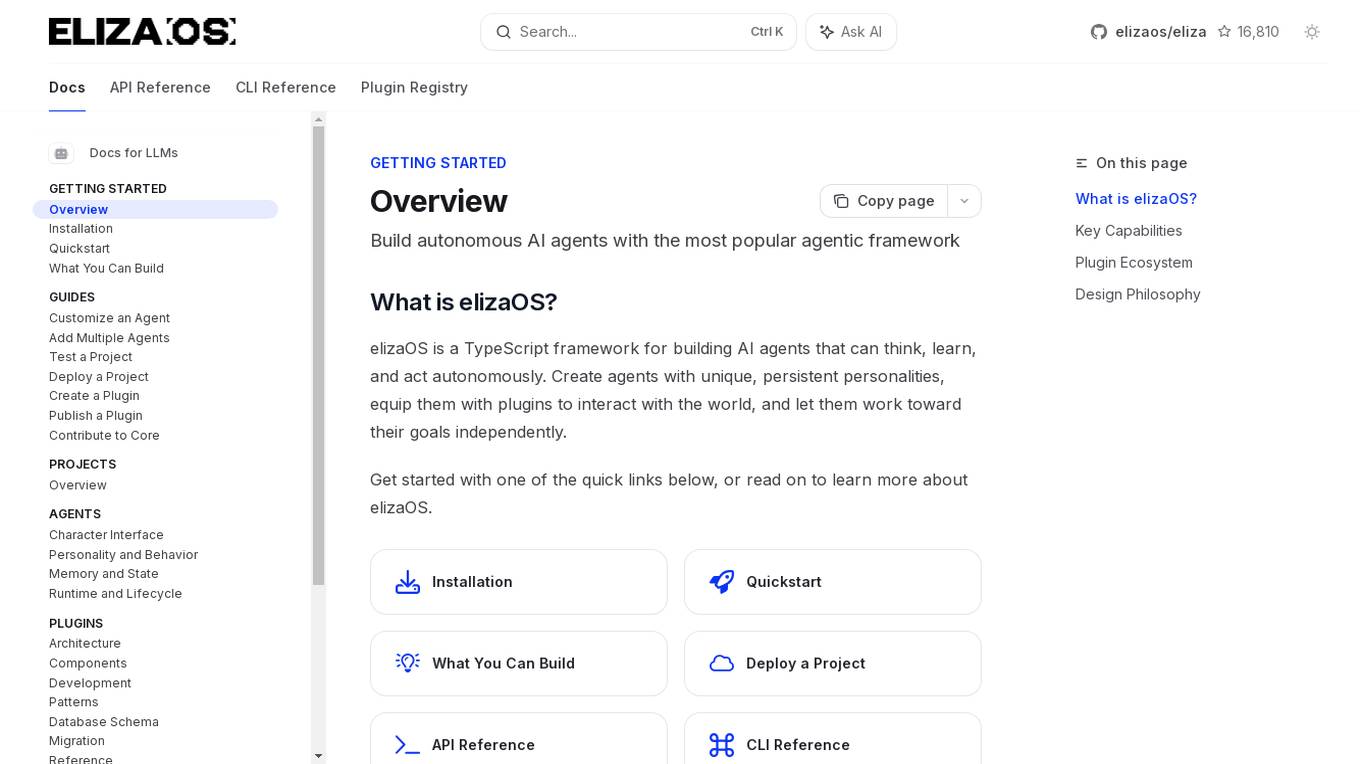
ElizaOS
ElizaOS is a TypeScript framework designed for building autonomous AI agents that can think, learn, and act independently. It offers a wide range of capabilities, including developing unique personalities, interacting with the real world through various plugins, executing complex action chains triggered by natural language, and remembering interactions with persistent memory. The framework comes with a rich plugin ecosystem, allowing users to mix and match capabilities without modifying core code. ElizaOS is ideal for builders who want to quickly ship projects, experiment freely, and contribute to the open-source community.

Frugal
Frugal is an intelligent application cost engineering platform that optimizes code to reduce cloud costs automatically. It is the first AI-powered cost optimization platform built for engineers, empowering them to find and fix inefficiencies in code that drain cloud budgets. The platform aims to reinvent cost engineering by enabling developers to reduce application costs and improve cloud efficiency through automated identification and resolution of wasteful practices.

Mixpeek
Mixpeek is a multimodal intelligence platform that helps users extract important data from videos, images, audio, and documents. It enables users to focus on insights rather than data preparation by identifying concepts, activities, and objects from various sources. Mixpeek offers features such as real-time synchronization, extraction and embedding, fine-tuning and scaling of models, and seamless integration with various data sources. The platform is designed to be easy to use, scalable, and secure, making it suitable for a wide range of applications.
1 - Open Source AI Tools
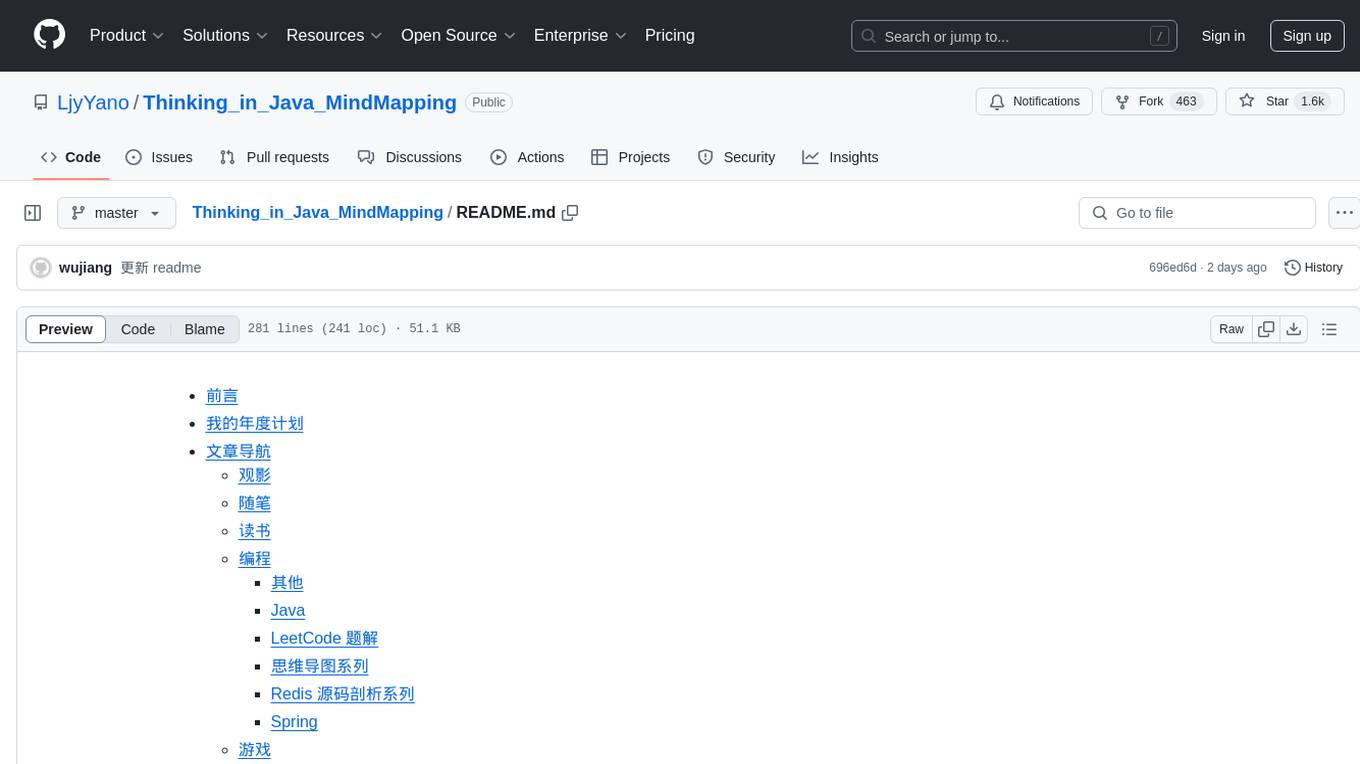
Thinking_in_Java_MindMapping
Thinking_in_Java_MindMapping is a repository that started as a project to create mind maps based on the book 'Java Programming Ideas'. Over time, it evolved into a collection of programming notes, blog posts, book summaries, personal reflections, and even gaming content. The repository covers a wide range of topics, allowing the author to freely express thoughts and ideas. The content is diverse and reflects the author's dedication to consistency and creativity.
20 - OpenAI Gpts
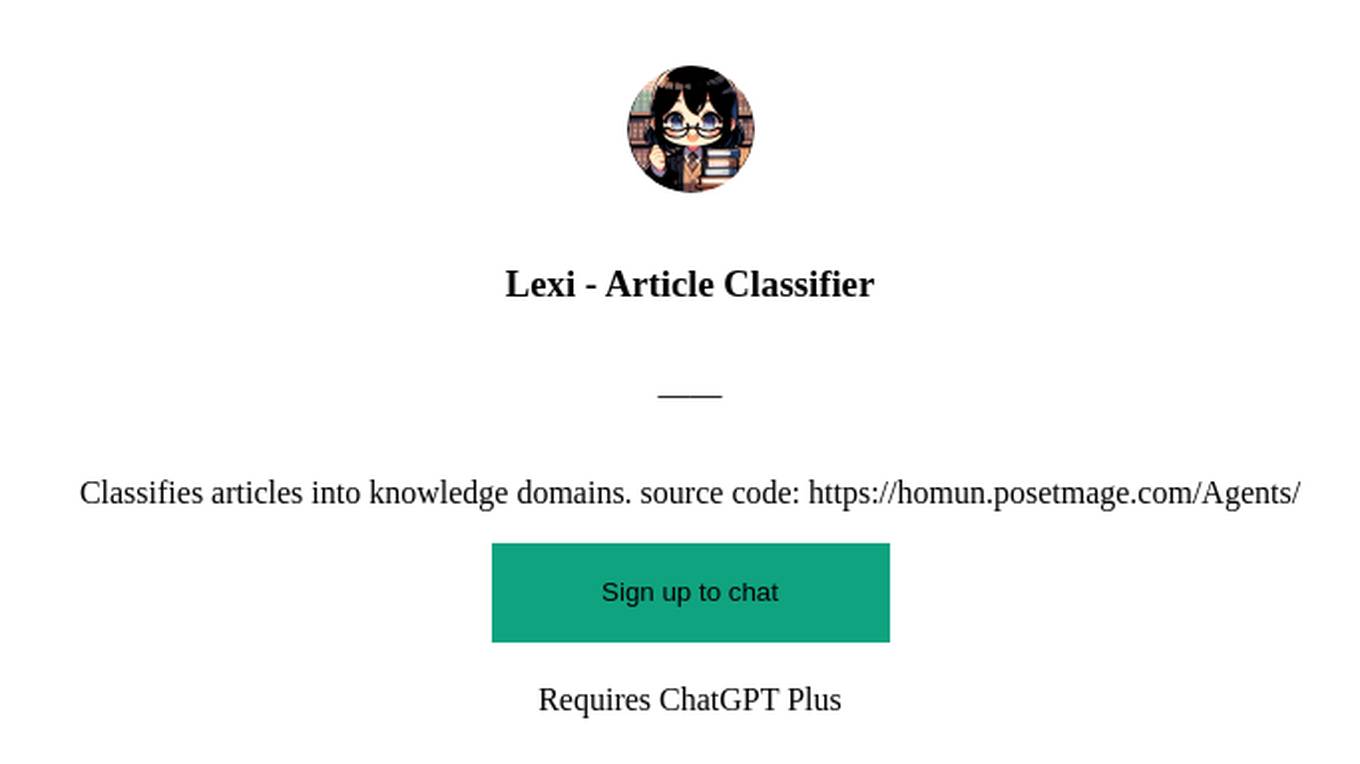
Lexi - Article Classifier
Classifies articles into knowledge domains. source code: https://homun.posetmage.com/Agents/
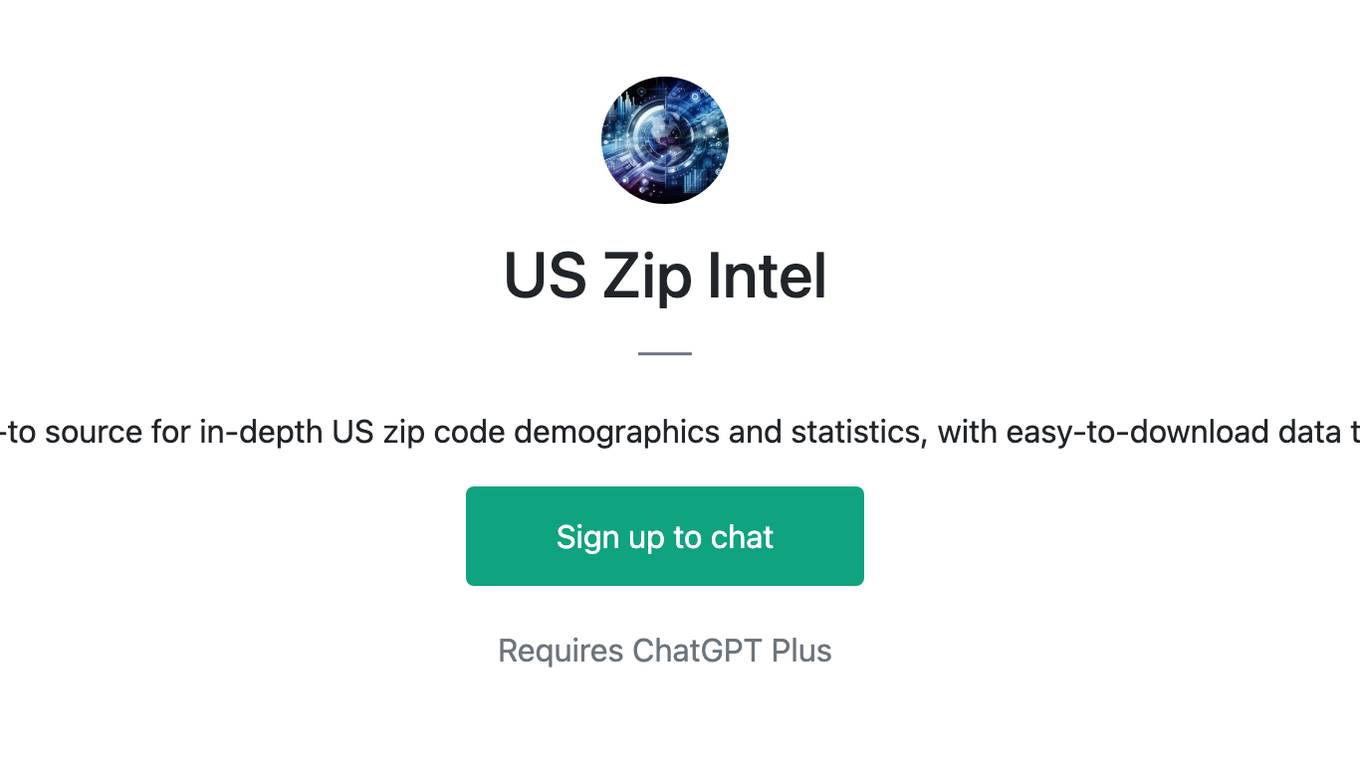
US Zip Intel
Your go-to source for in-depth US zip code demographics and statistics, with easy-to-download data tables.
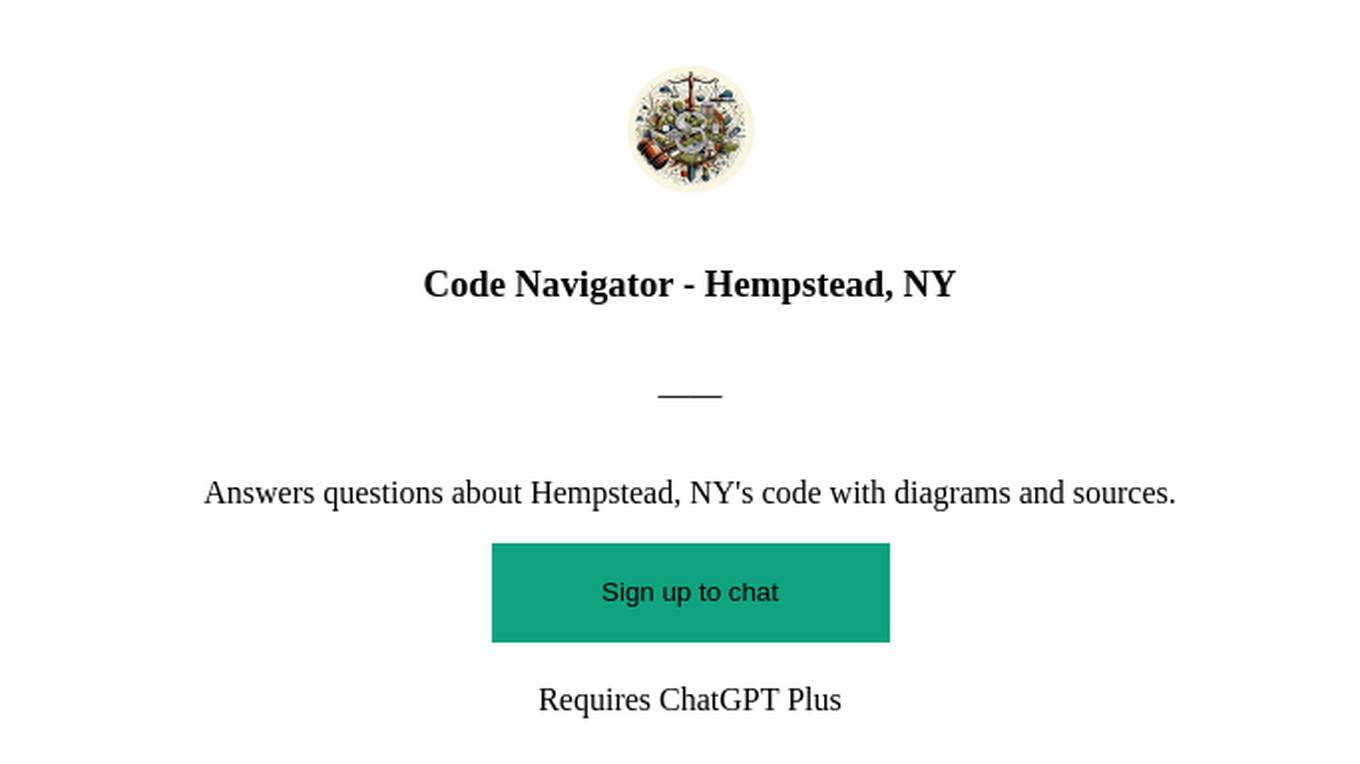
Code Navigator - Hempstead, NY
Answers questions about Hempstead, NY's code with diagrams and sources.
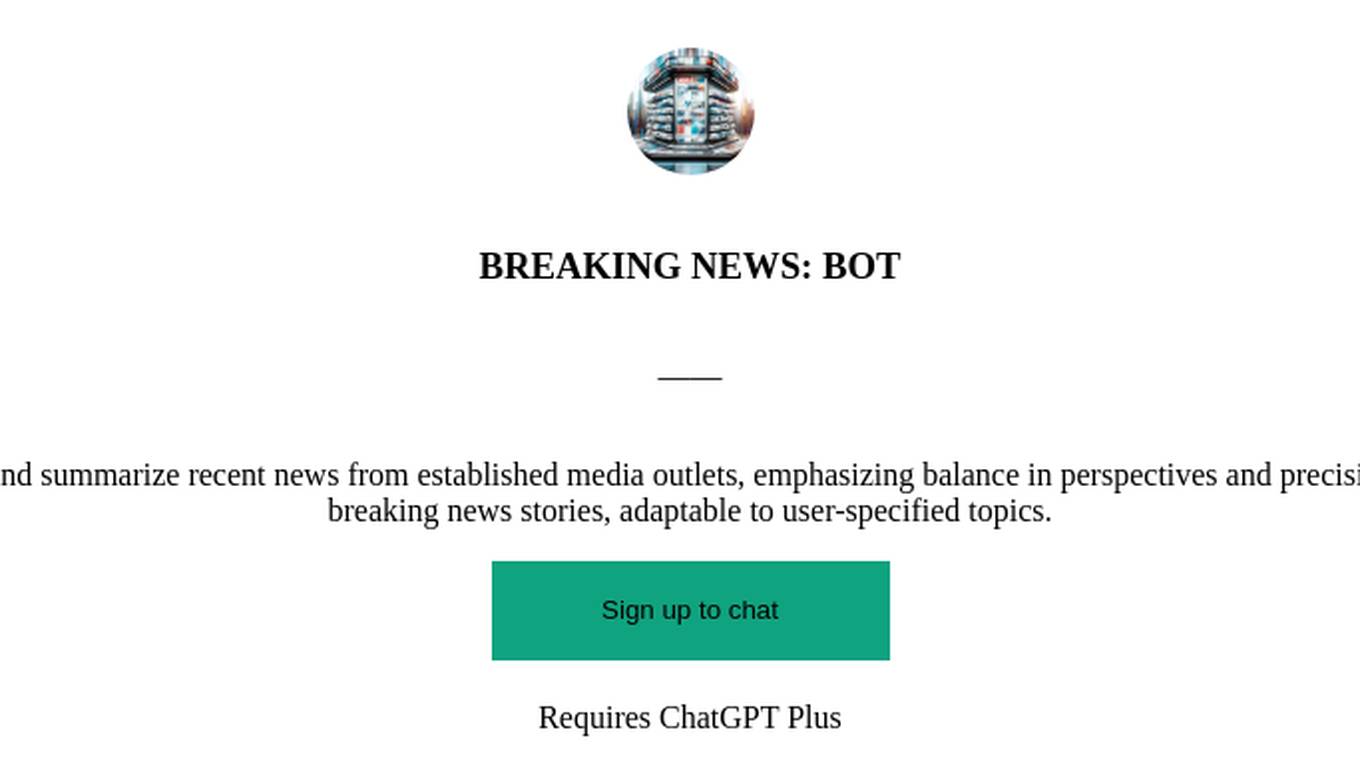
BREAKING NEWS: BOT
A GPT/AI system designed to collect, analyze, and summarize recent news from established media outlets, emphasizing balance in perspectives and precision in content delivery, with a default focus on top breaking news stories, adaptable to user-specified topics.
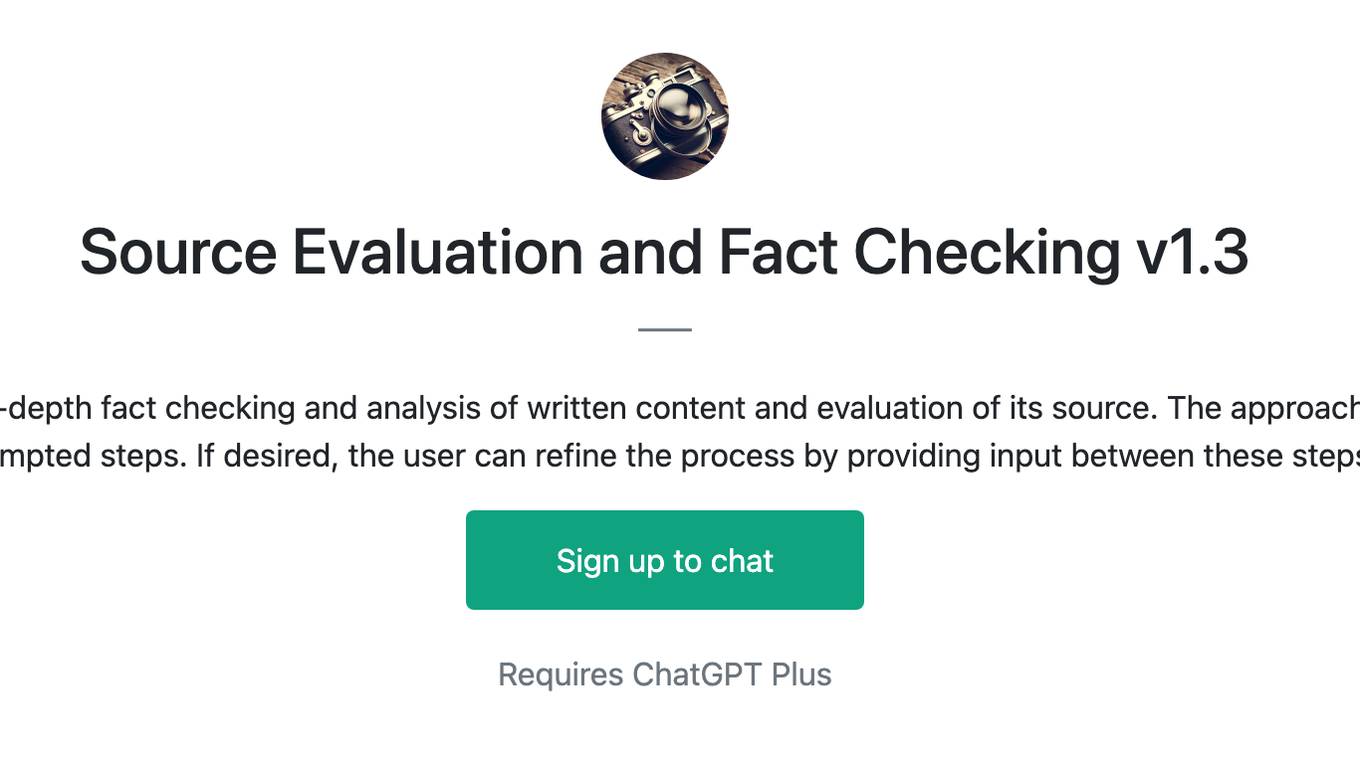
Source Evaluation and Fact Checking v1.3
FactCheck Navigator GPT is designed for in-depth fact checking and analysis of written content and evaluation of its source. The approach is to iterate through predefined and well-prompted steps. If desired, the user can refine the process by providing input between these steps.

Fantasy Football Analyst
Your go-to source for winning fantasy football strategies and insights.
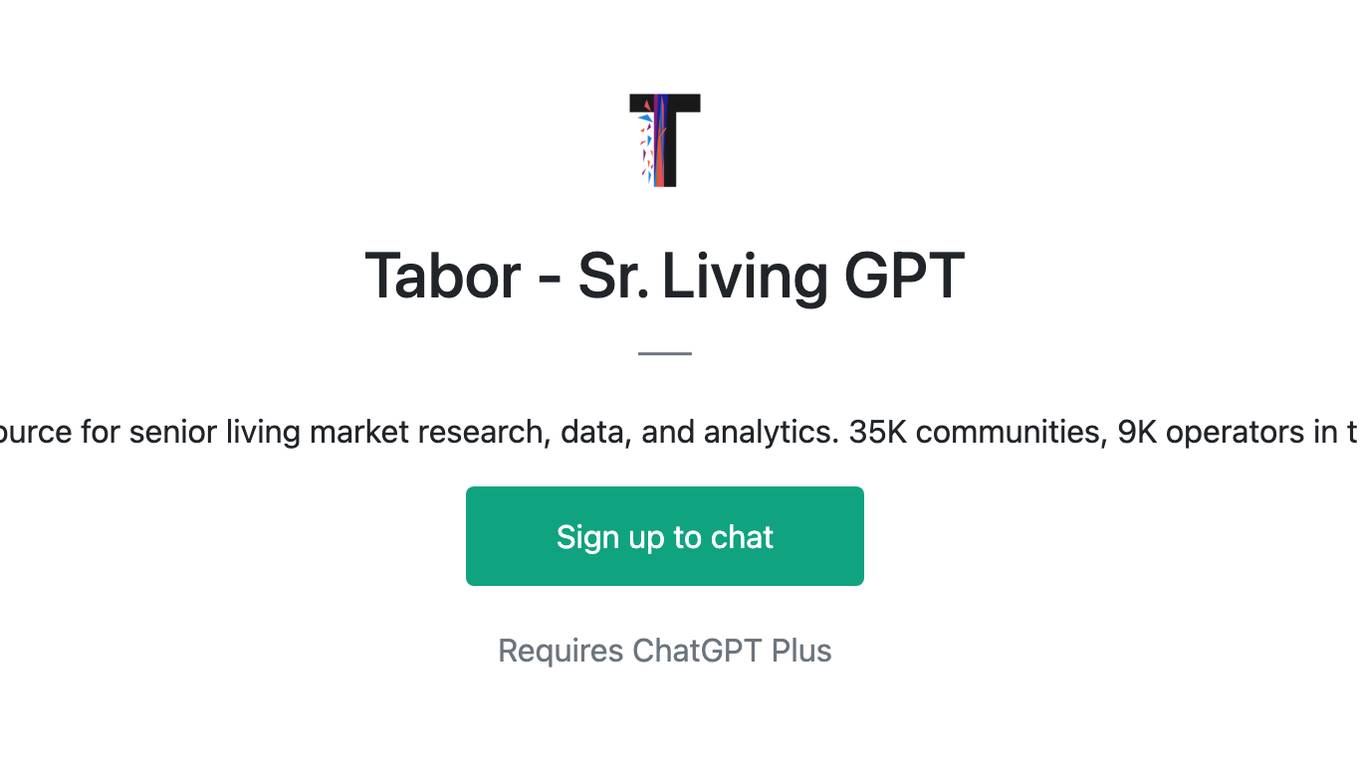
Tabor - Sr. Living GPT
Trusted source for senior living market research, data, and analytics. 35K communities, 9K operators in the USA.

Persona Pilot™
Your #1 source for creating buyer personas. The only official Ai based on the award winning book, The World's Best Buyer Persona System
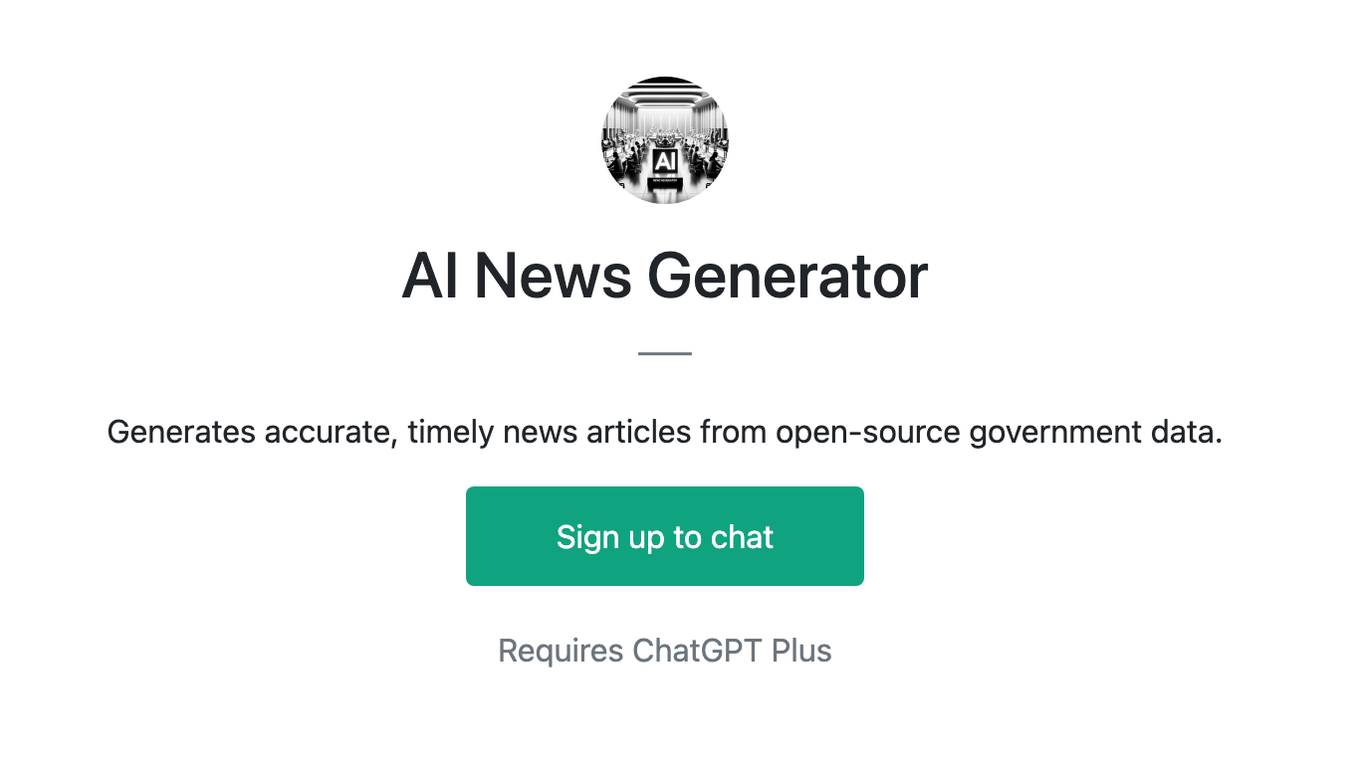
AI News Generator
Generates accurate, timely news articles from open-source government data.
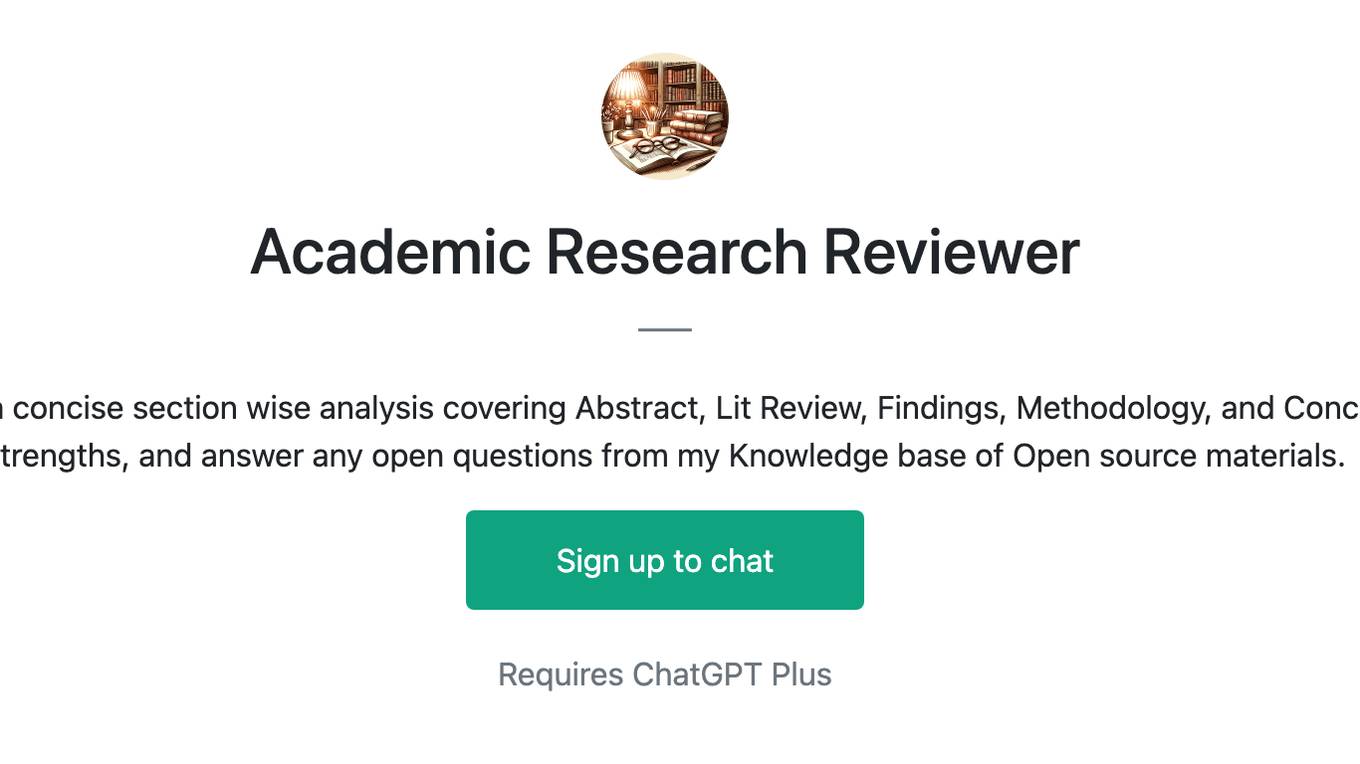
Academic Research Reviewer
Upon uploading a research paper, I provide a concise section wise analysis covering Abstract, Lit Review, Findings, Methodology, and Conclusion. I also critique the work, highlight its strengths, and answer any open questions from my Knowledge base of Open source materials.
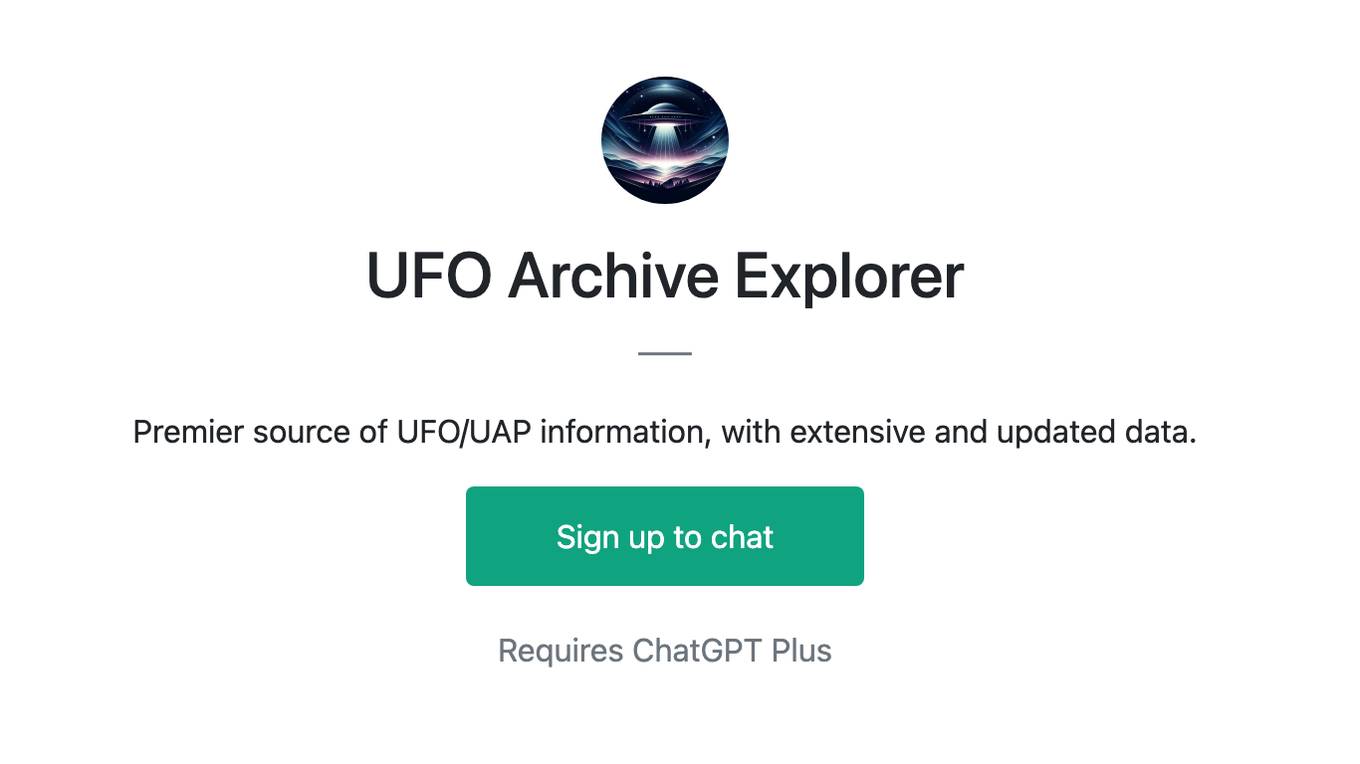
UFO Archive Explorer
Premier source of UFO/UAP information, with extensive and updated data.
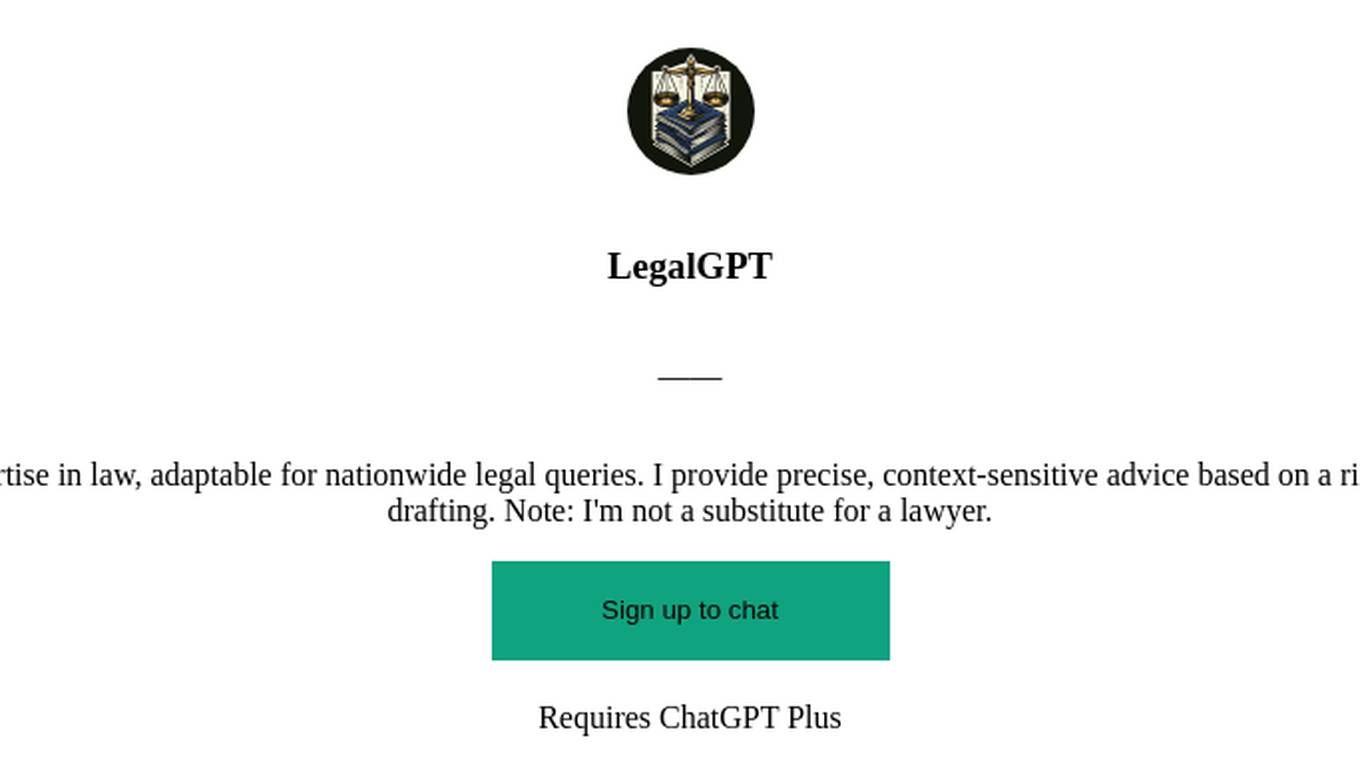
LegalGPT
As LegalGPT, I'm an AI legal assistant with expertise in law, adaptable for nationwide legal queries. I provide precise, context-sensitive advice based on a rich knowledge source, aiding in legal reasoning and drafting. Note: I'm not a substitute for a lawyer.

Professor's Aide - College/University
Your go-to source for innovative, practical teaching solutions in higher education.
